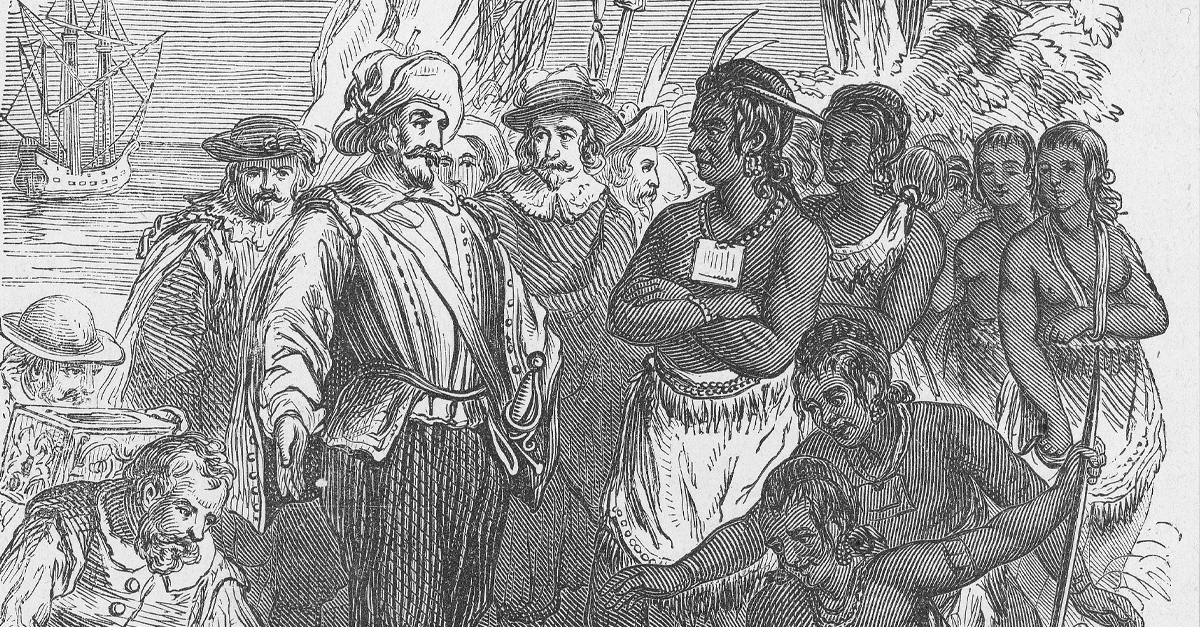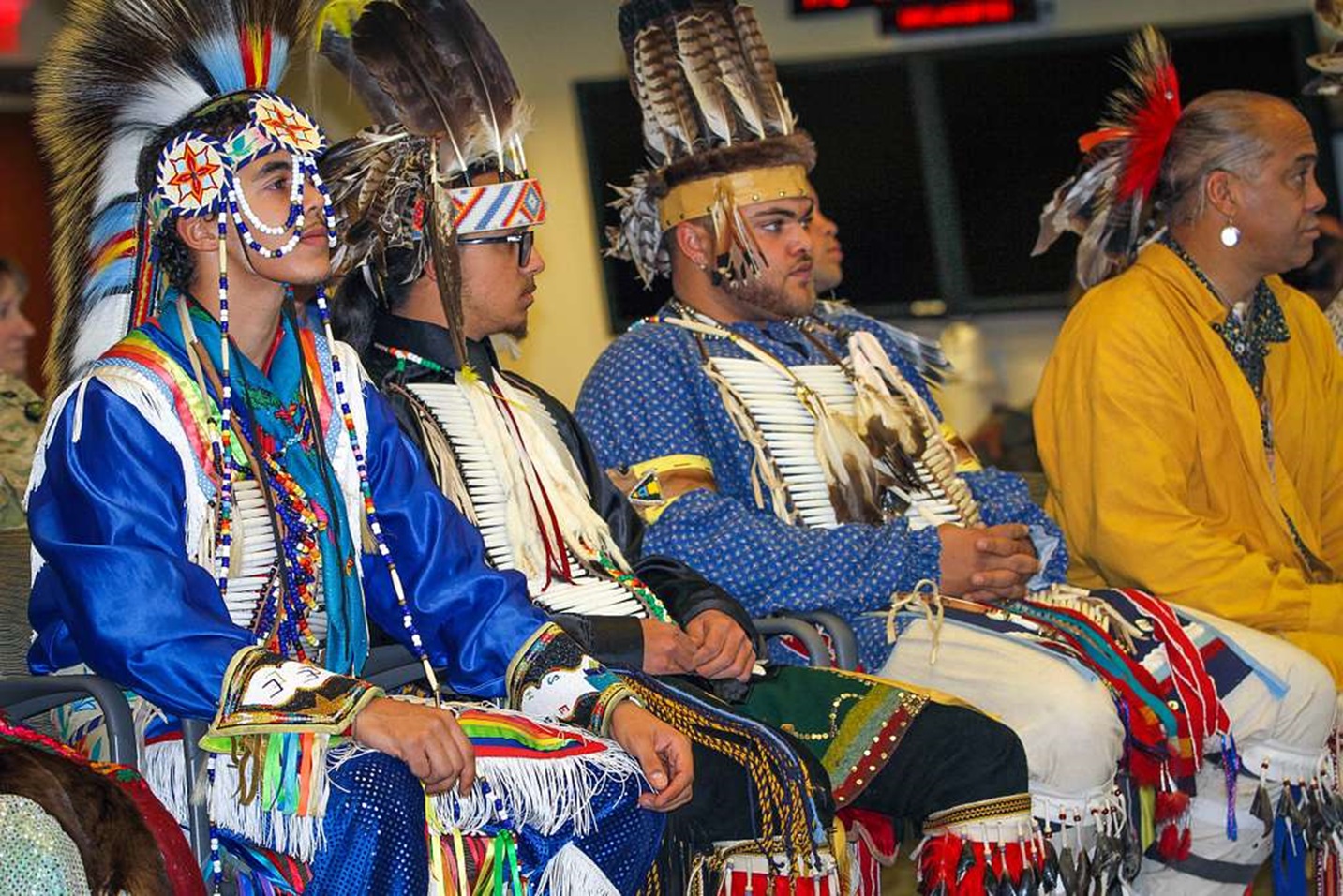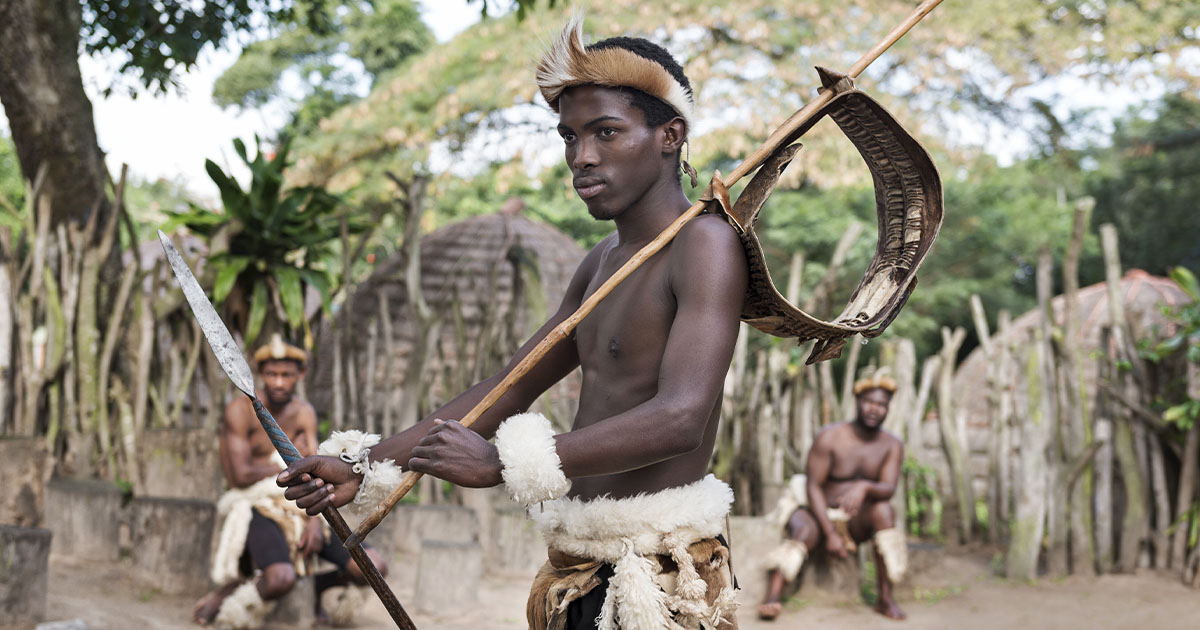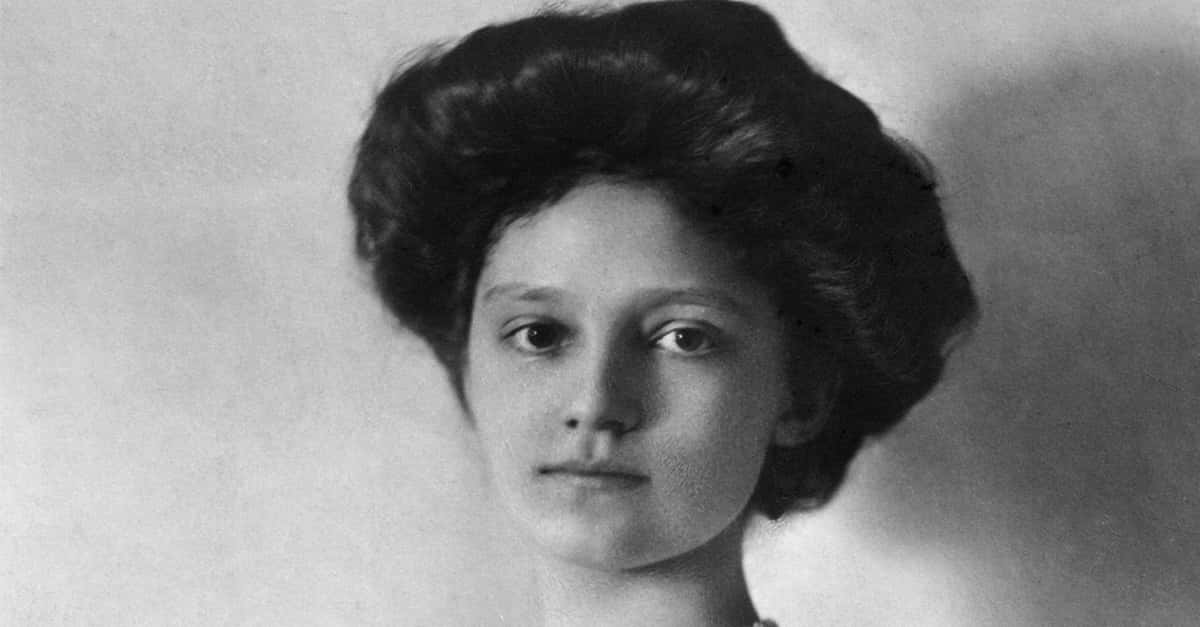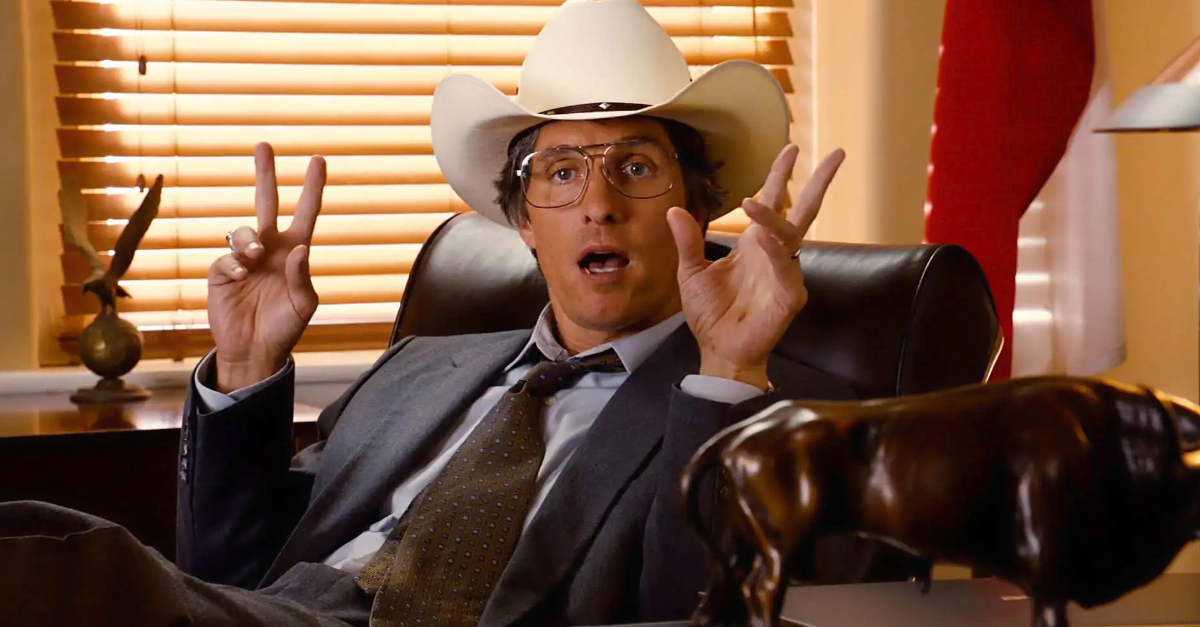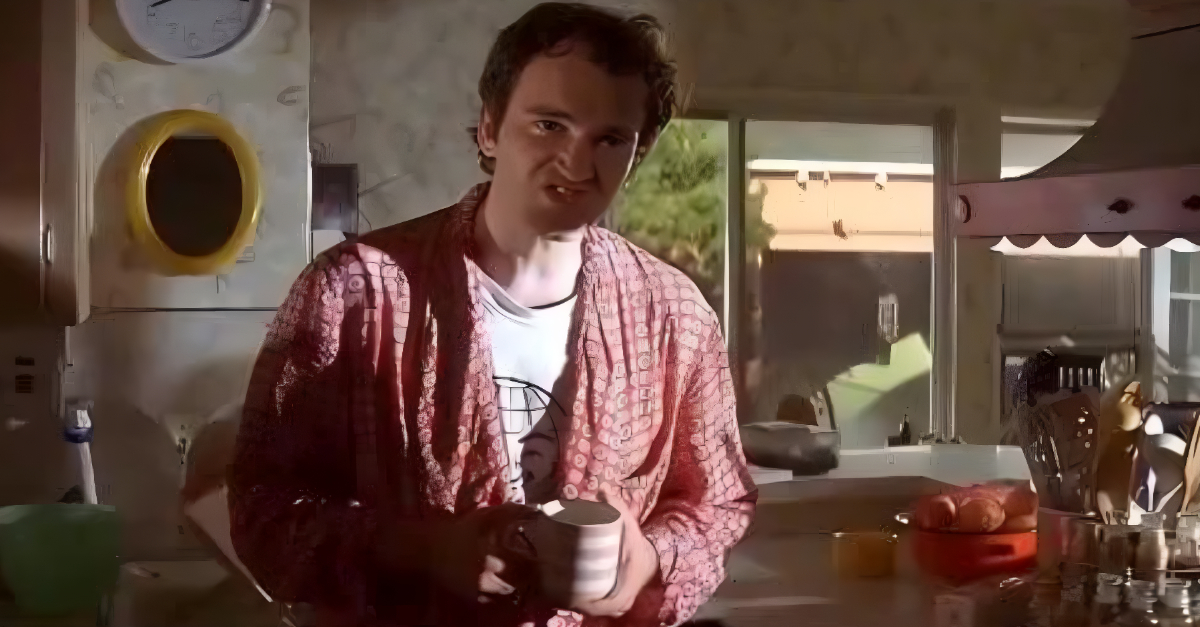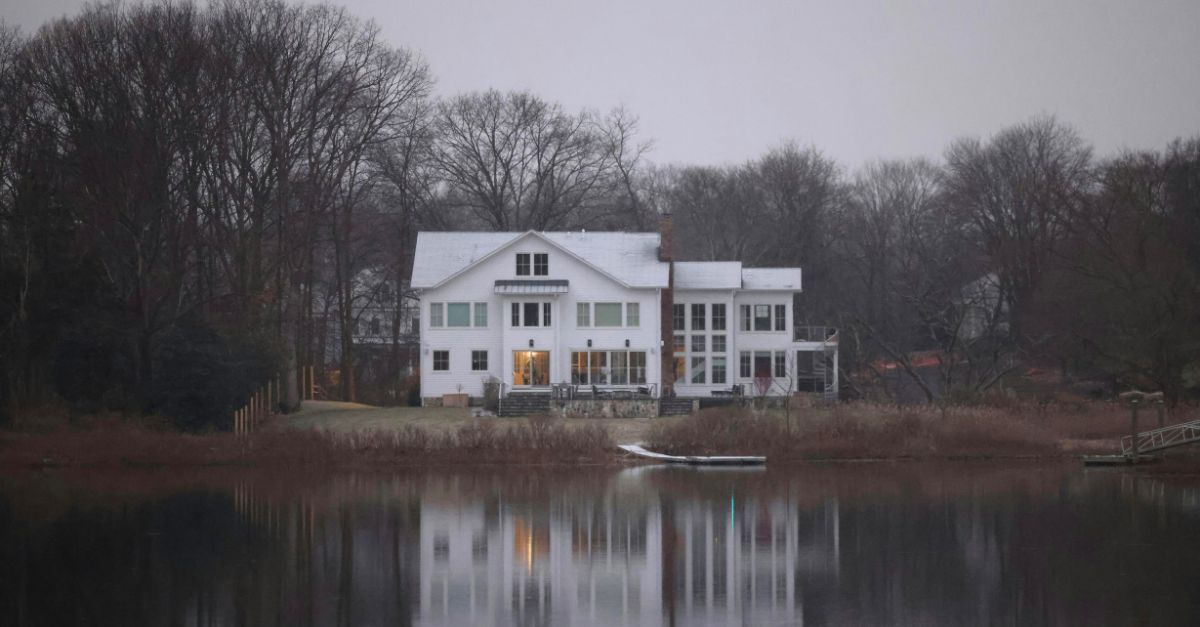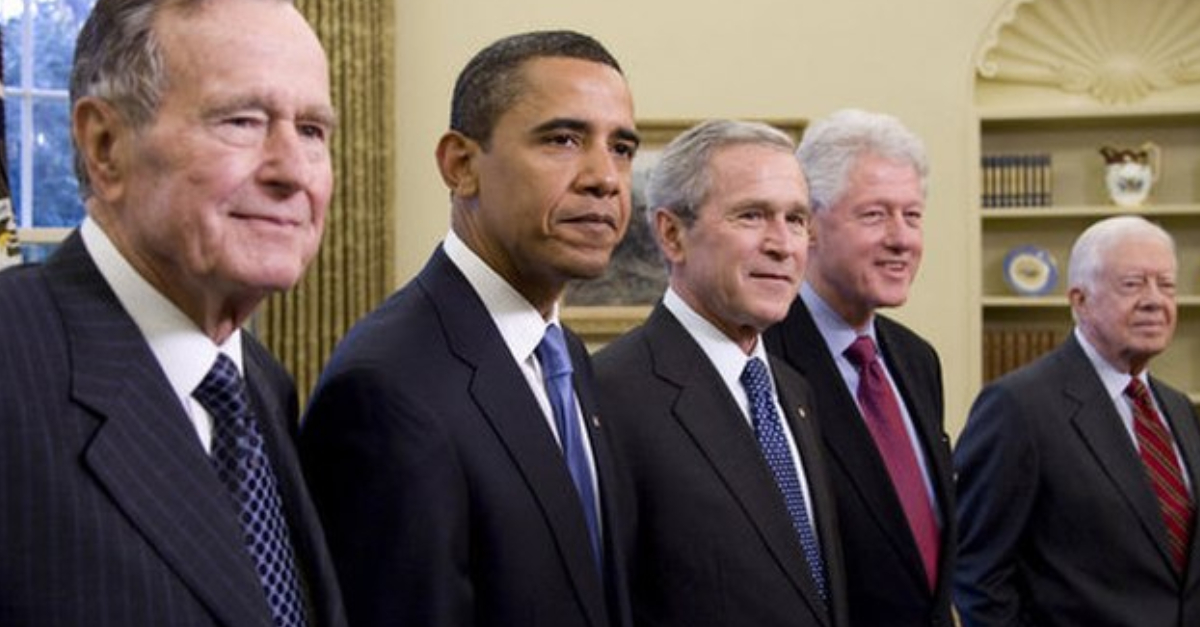The Croatan People
The Croatan were a small Native American tribe living in the Outer Banks of North Carolina. Algonquin speakers, they were closely related to the nearby Roanoke and Pocahontas's Powhatan tribe.
Not long after the arrival of Europeans, the Croatan became embroiled in what remains one of America's greatest mysteries.
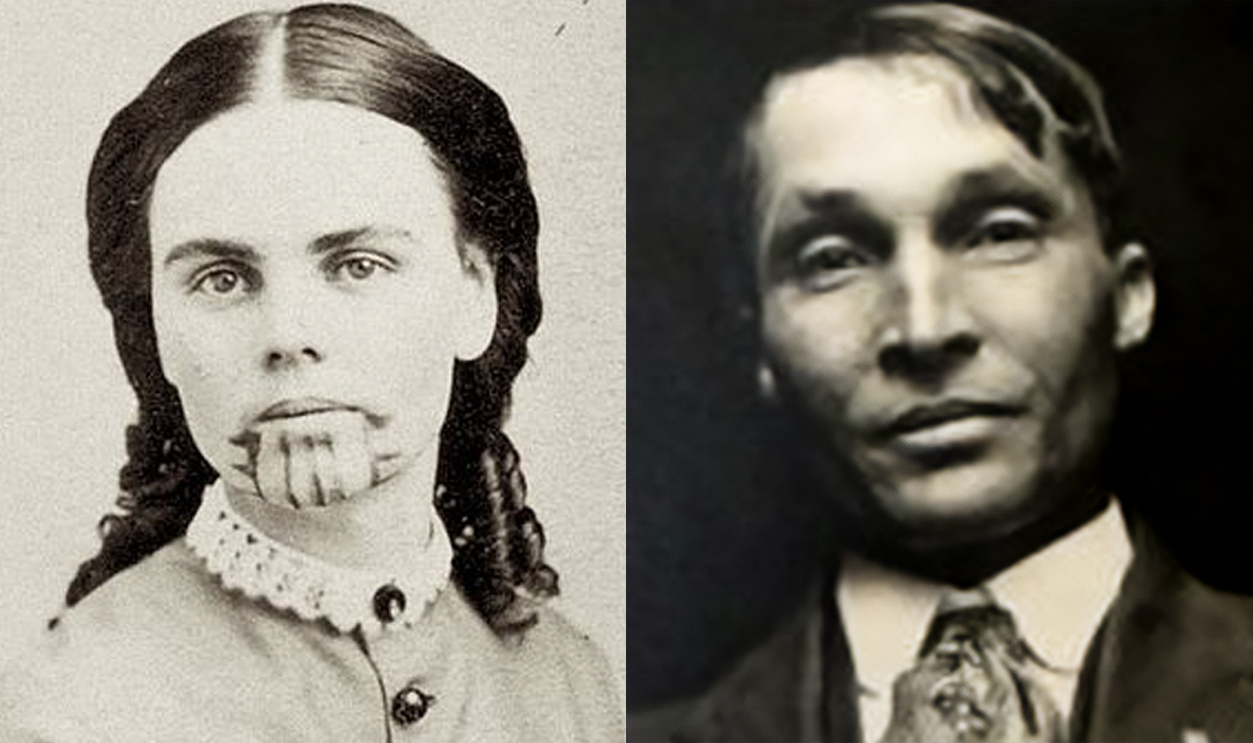
The Lost Colony Of Roanoke
In 1590, when the Lost Colony of Roanoke disappeared, never to be seen again, they left a single clue: The word "Croatoan" written on a fencepost.
The Croatan definitely had something to do with the colony's disappearance—but what?
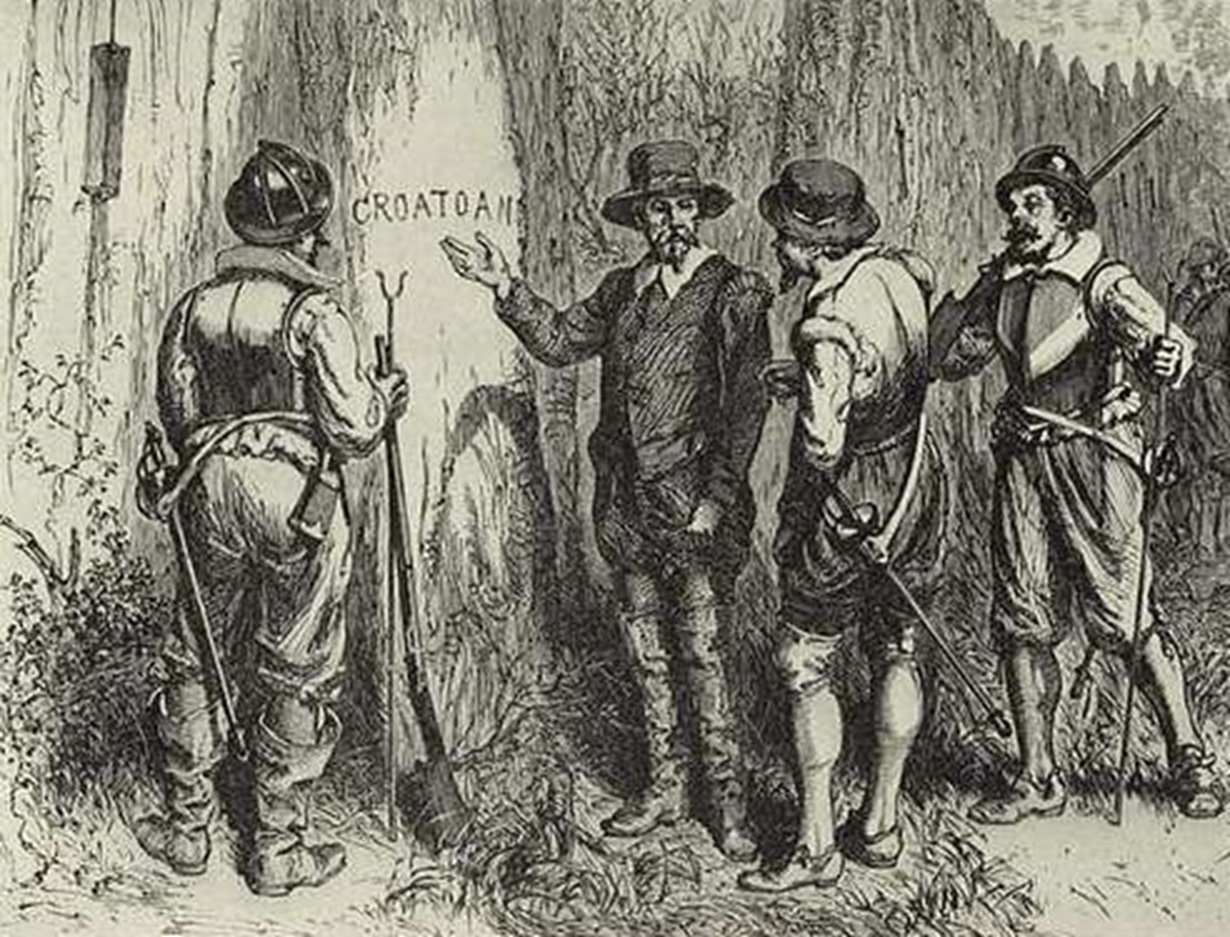 New York Public Library, Picryl
New York Public Library, Picryl
They Lived In The Outer Banks
Croatan land included much of North Carolina's Outer Banks. Modern-day tourist hotspots like Ocracoke Island and Hatteras Island were part of the Croatan territory, and inland along the Alligator River.
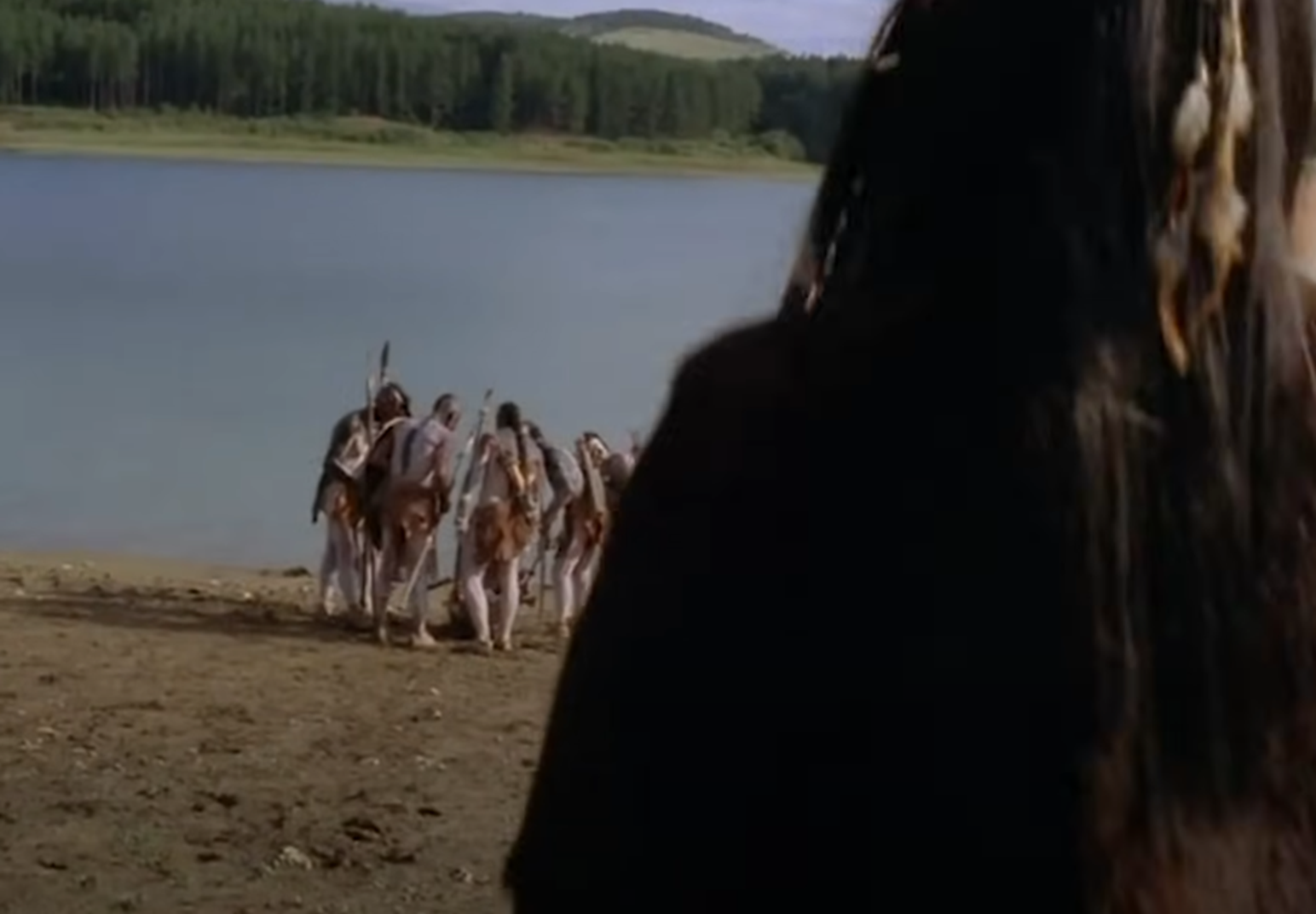 AWP, Lost Colony:The Legend of Roanoke (2007)
AWP, Lost Colony:The Legend of Roanoke (2007)
They Had Complex Societies
Croatan society was led by chiefs who went by the name werowance, meaning "one who is rich". The richer the werowance, the more influence they had. A particularly powerful chief might control as many as 18 towns—and there was safety in numbers.
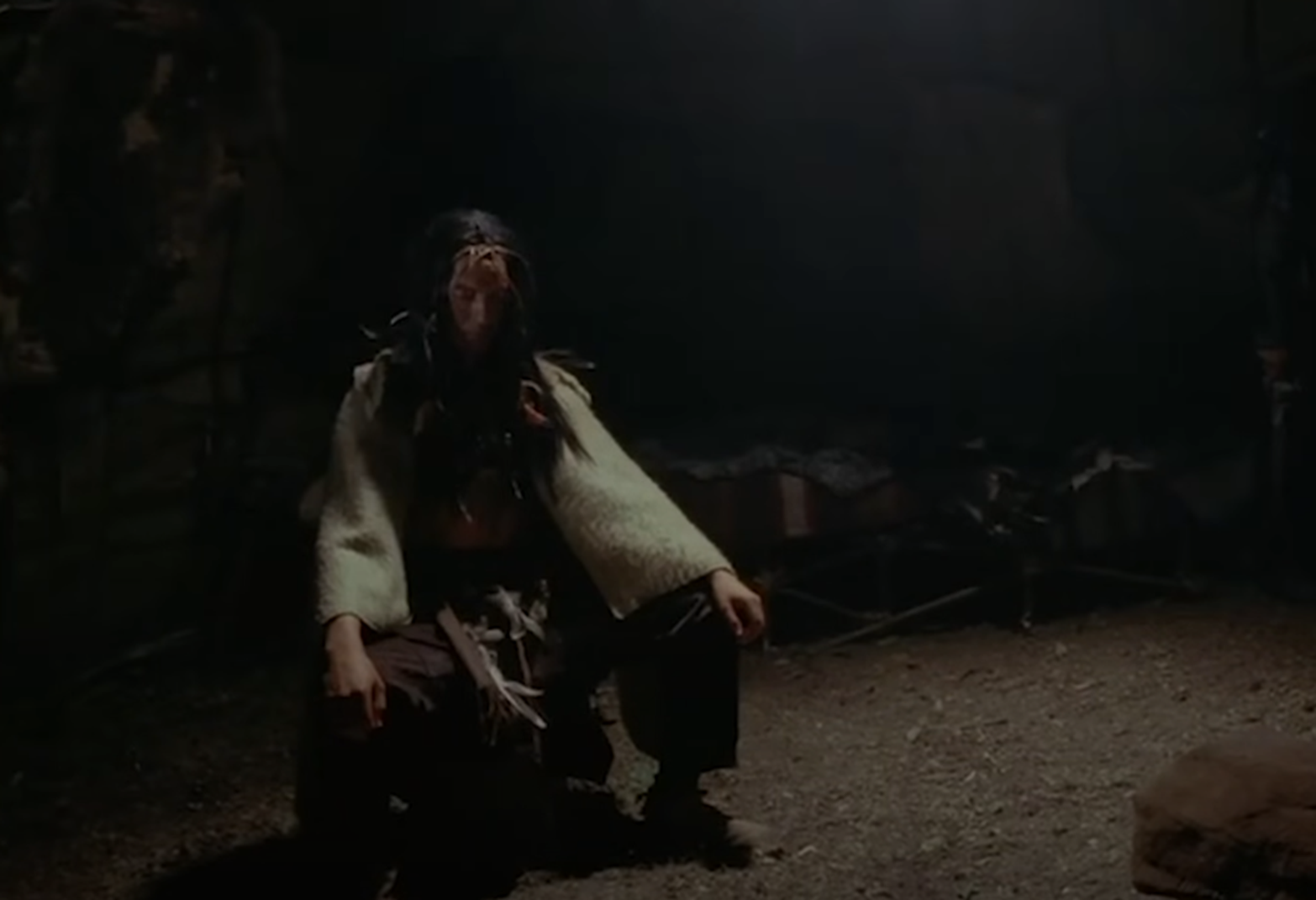 AWP, Lost Colony:The Legend of Roanoke (2007)
AWP, Lost Colony:The Legend of Roanoke (2007)
They Could Field An Army
In times of war, a powerful werowance could muster 700-800 fighting men from their territory—and while the Croatan and other Algonquian tribes believed in cooperation, not all their neighbors agreed.
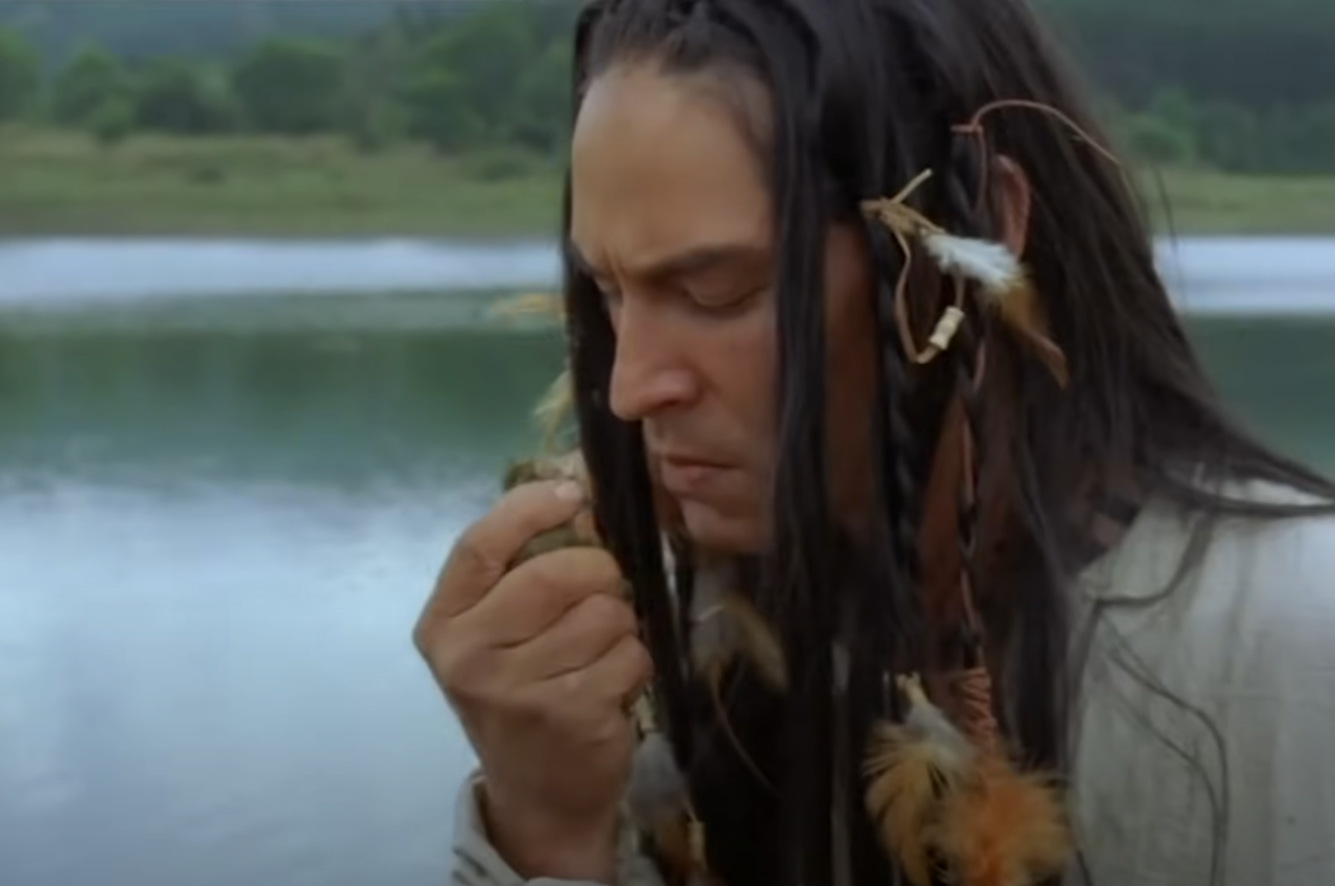 AWP, Lost Colony:The Legend of Roanoke (2007)
AWP, Lost Colony:The Legend of Roanoke (2007)
Their Lands Had Conflict
Though the Croatan were related to Algonquian tribes like the Roanoke and the Powhatan, there were also tribes like the Iroquoian Cherokee and the Muskogean Yamasee and Chickasaw. These very different cultures all occupied the same region, and it often got violent.
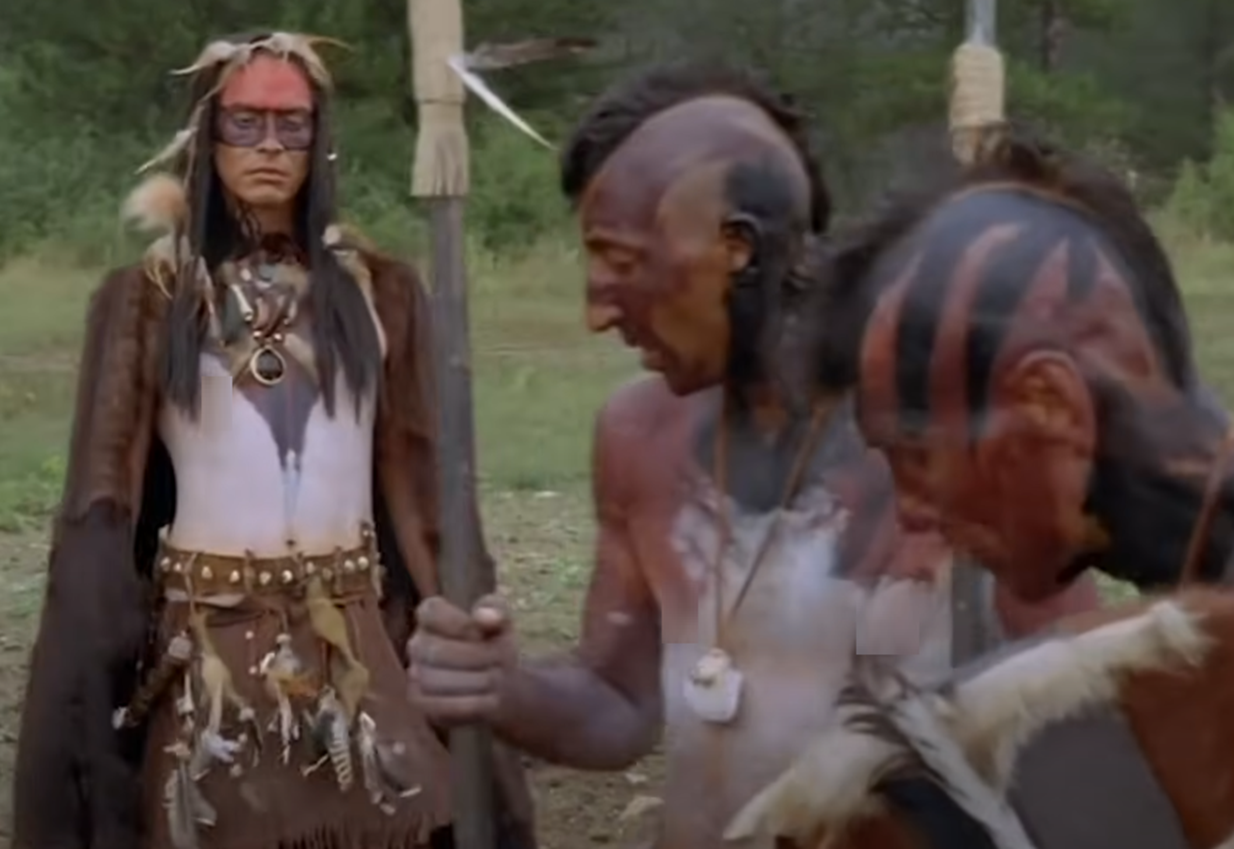 AWP, Lost Colony:The Legend of Roanoke (2007)
AWP, Lost Colony:The Legend of Roanoke (2007)
Chiefs Were Not All Powerful
A werowance who could protect their people earned great status and respect in Croatan society, but they were a far from a king. A werowance was expected to act in the tribe's best interest, to explain their decisions, and to distribute wealth to the people of the tribe.
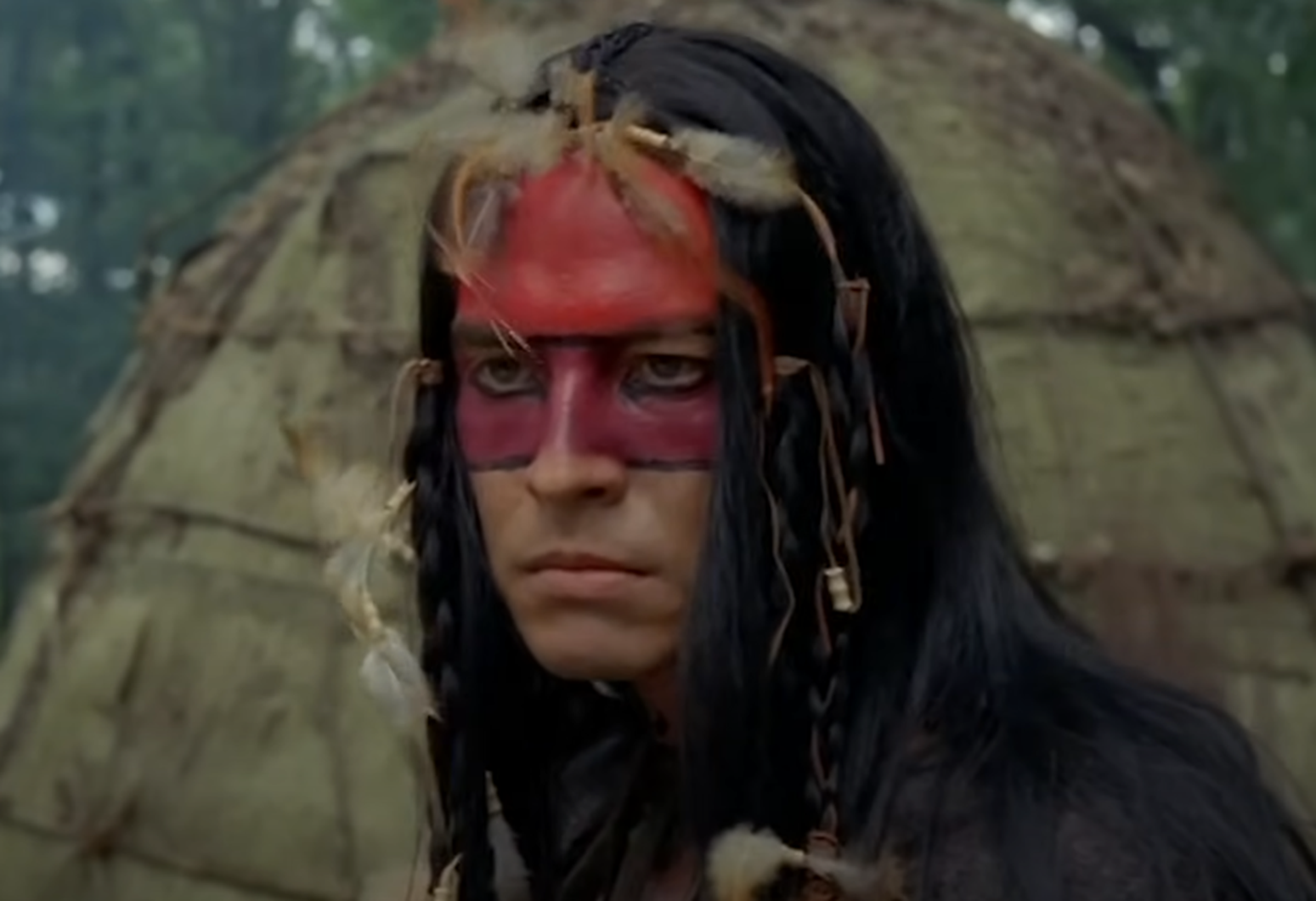 AWP, Lost Colony:The Legend of Roanoke (2007)
AWP, Lost Colony:The Legend of Roanoke (2007)
Their Name Is Unclear
We aren't exactly sure what the word Croatan means. Linguistic analysis of Carolina Algoquinian languages indicates it means "council town" or "talk town," so it might have referred to the home of the chief.
It's also believed that "Croatan" was the name of the tribe's principal town on Hatteras Island.
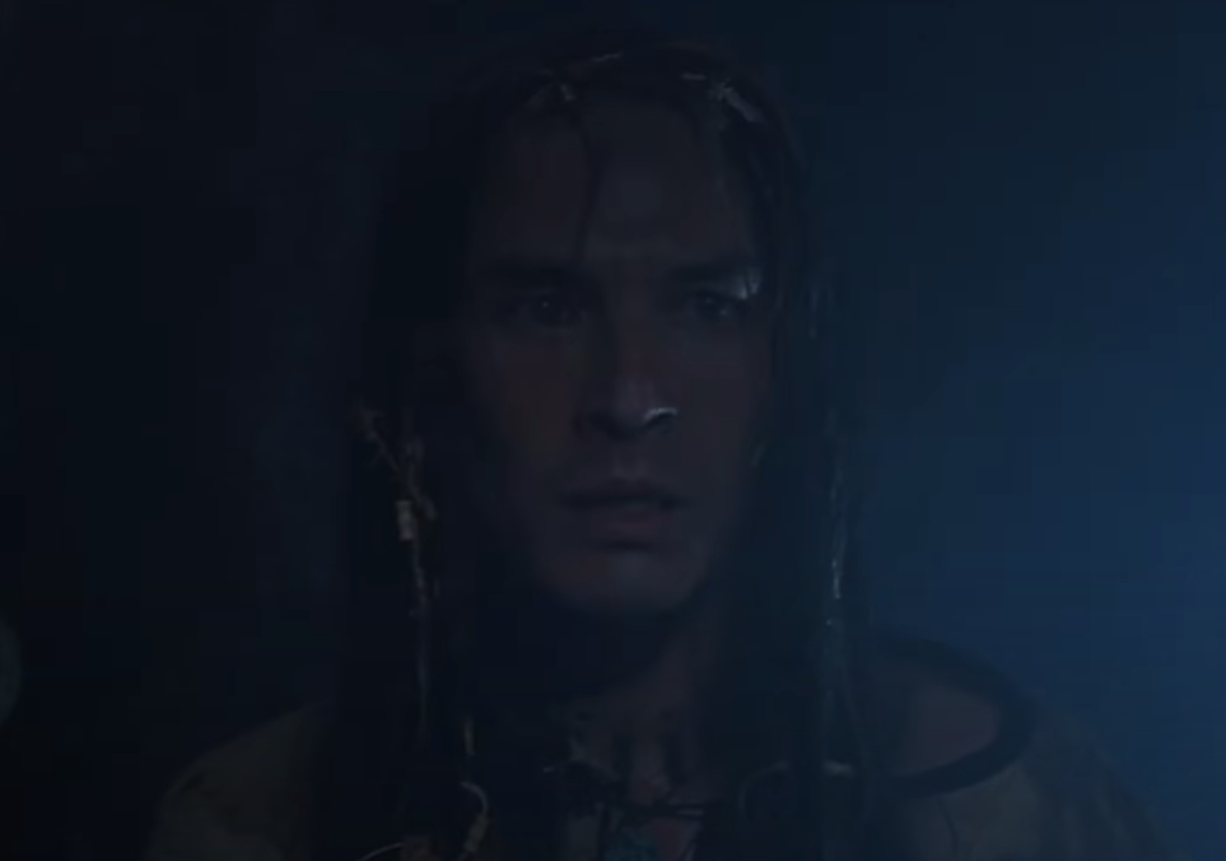 AWP, Lost Colony:The Legend of Roanoke (2007)
AWP, Lost Colony:The Legend of Roanoke (2007)
They Lived Spiritual Lives
According to Thomas Harriot, the first person to study the Carolina Algoquinian, the Croatan believed in an all-powerful God who rewarded virtuous souls in the heavenly Popogusso near the setting sun, or else doomed sinners to burn for eternity in a pit of fire.
For religious guidance, Croatan would seek the knowledge of a priest—or the magic of a conjurer.
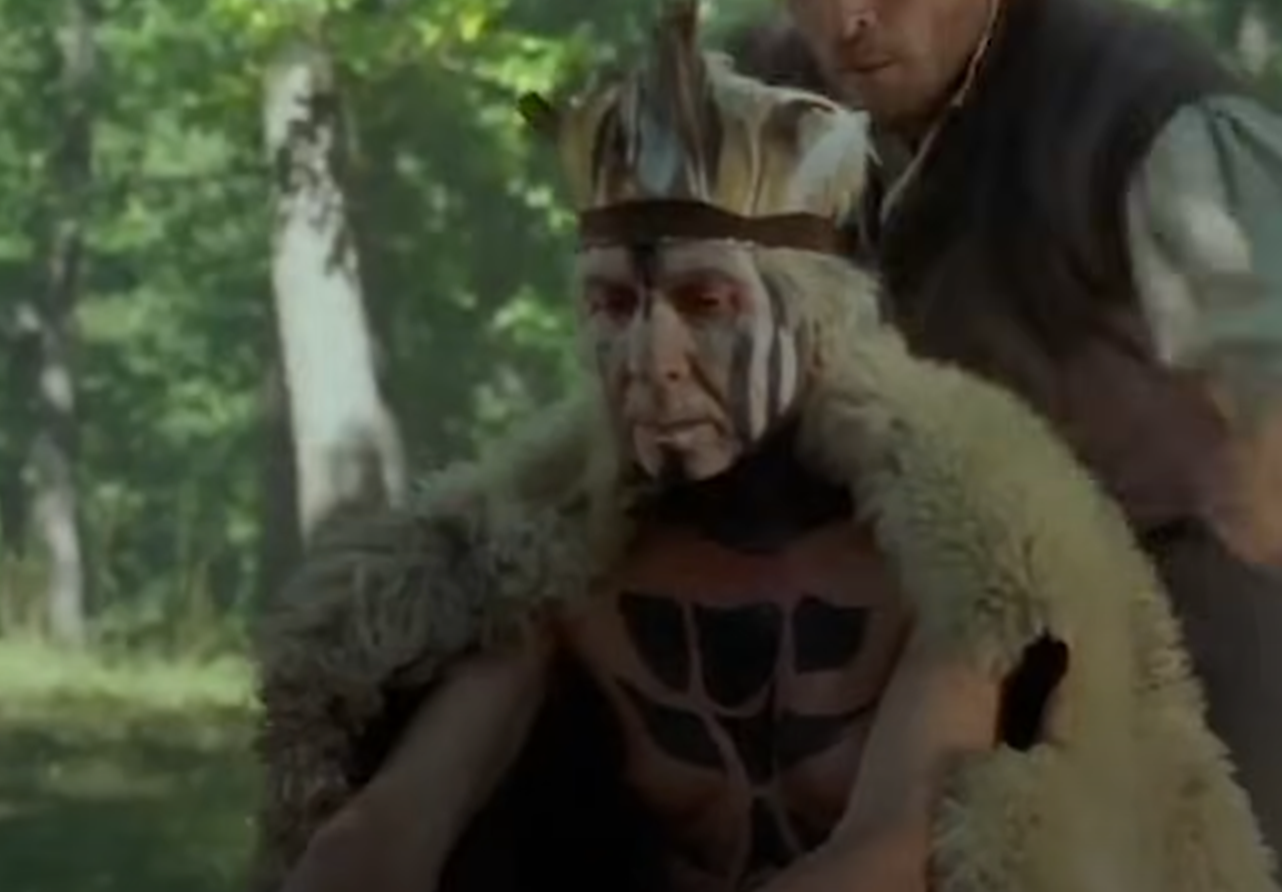 AWP, Lost Colony:The Legend of Roanoke (2007)
AWP, Lost Colony:The Legend of Roanoke (2007)
Priests Held Religious Knowledge
Croatan religion was very organized, and priests were chosen both for their knowledge of religious dogma and for their wisdom in interpreting it. But if going to your priest wasn't working, you might have sought out the more drastic aid of a conjurer.
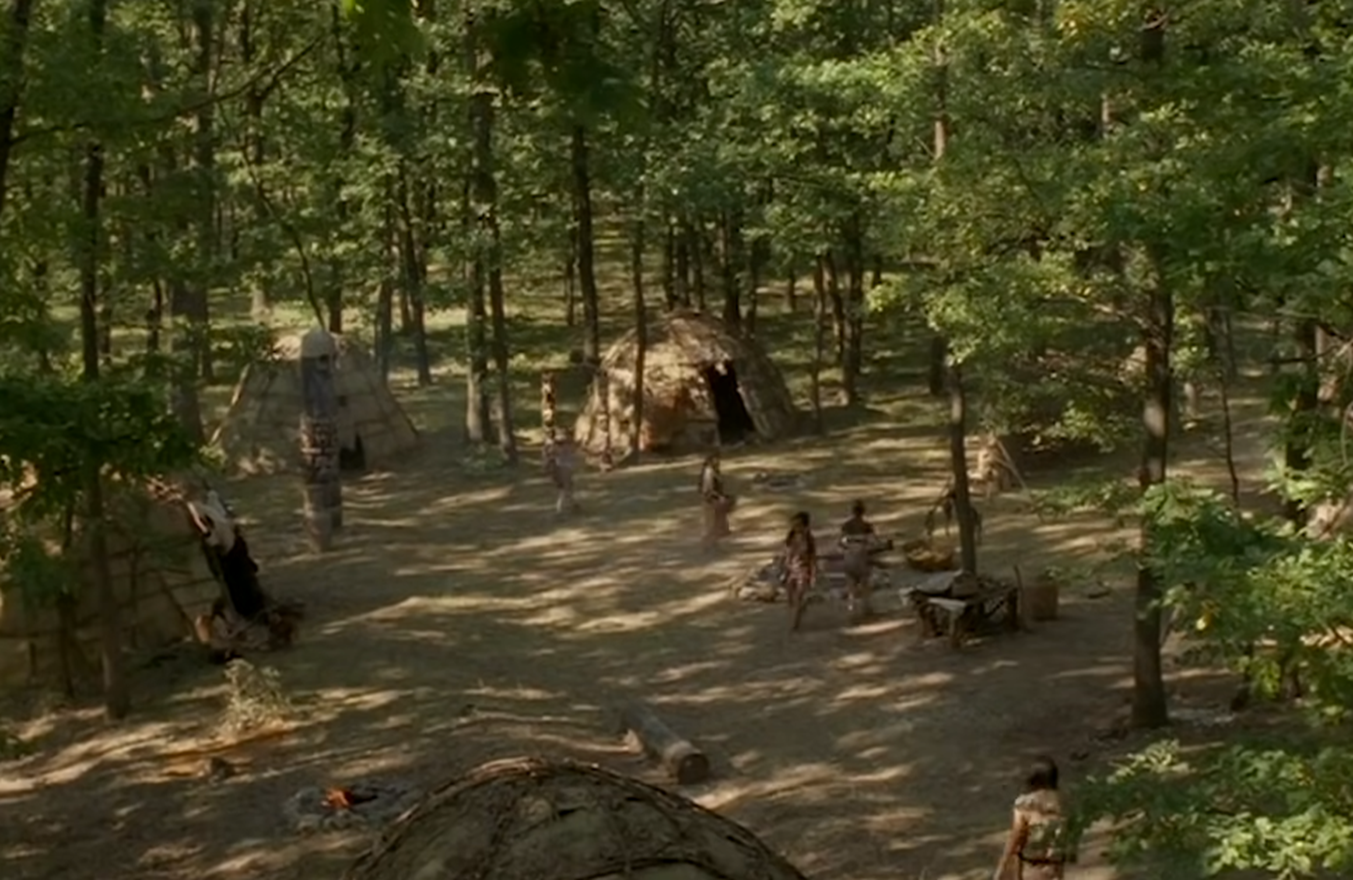 AWP, Lost Colony:The Legend of Roanoke (2007)
AWP, Lost Colony:The Legend of Roanoke (2007)
Conjurers Performed Magic
English settlers called them "Conjurers," but the Croatan would have called them healers. These men and women were said to draw their supernatural power from a connection to the spiritual world, usually through an animal spirit.
A Croatan might go to a conjurer to seek healing, or to ward off evil spirits.
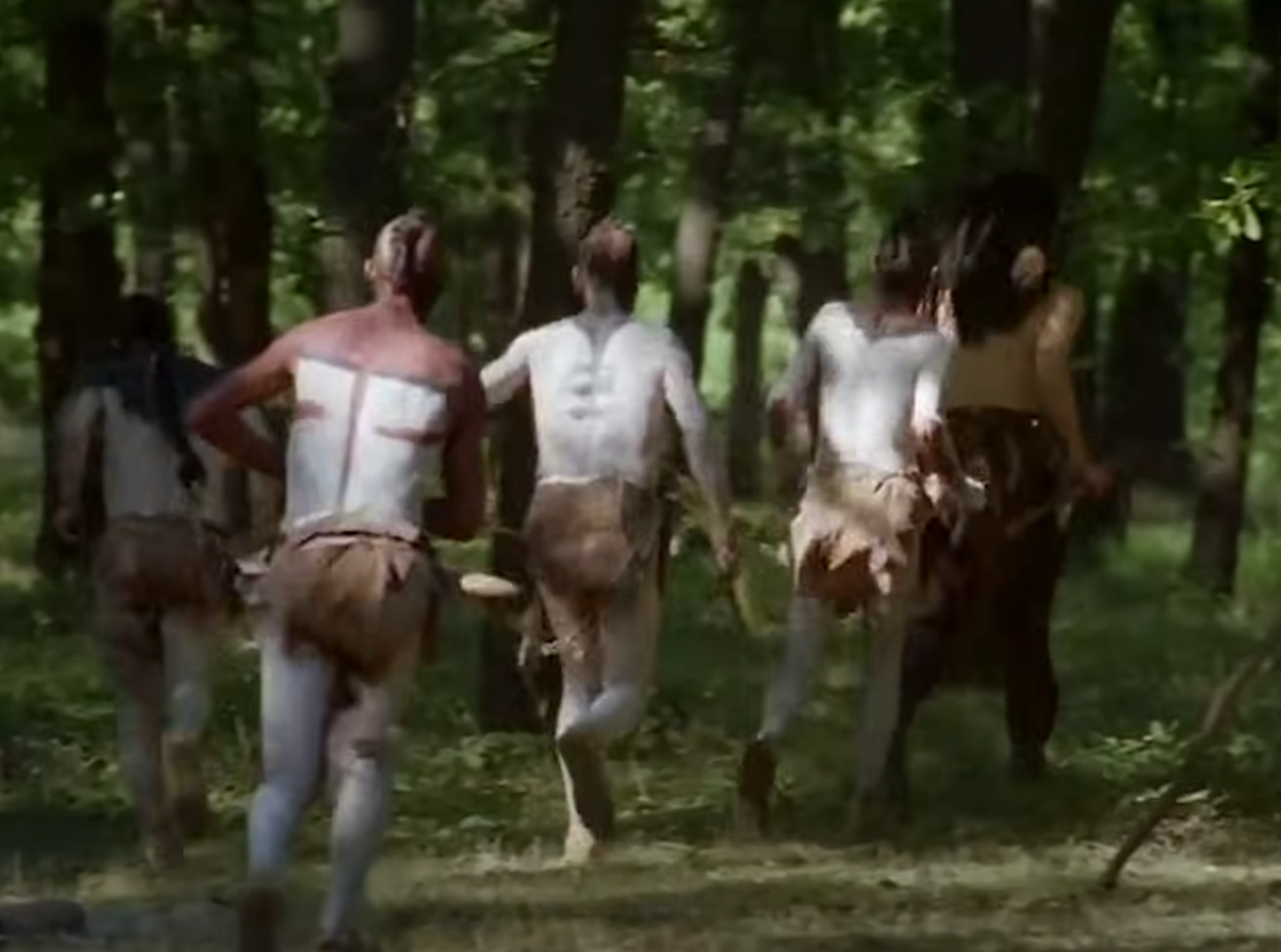 AWP, Lost Colony:The Legend of Roanoke (2007)
AWP, Lost Colony:The Legend of Roanoke (2007)
Contact Changed Everything
The first European to explore the coast of North Carolina was the Itallian Giovanni da Verrazzano in 1524, who mistakenly thought that Pamlico Sound was the Pacific Ocean. If any Croatan saw his ship from a distance, however, we'll never know.
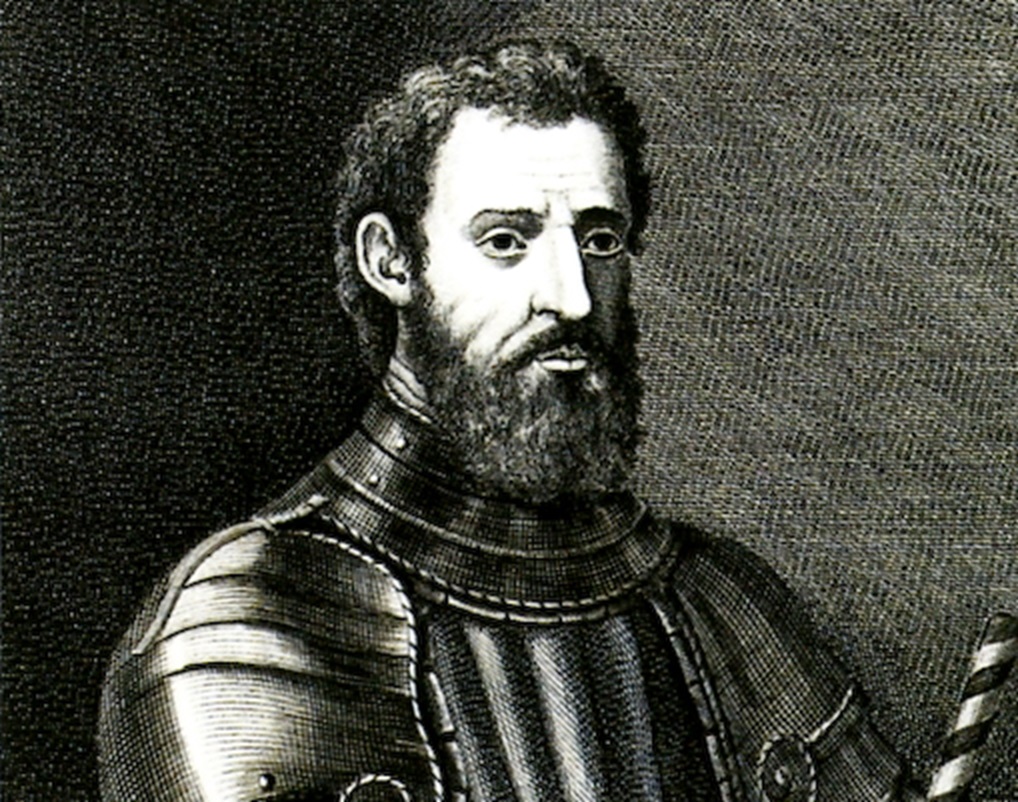 F. Allegrini, Wikimedia Commons
F. Allegrini, Wikimedia Commons
They Made USO Sightings
In the years that followed, maybe members of the tribe told stories about the strange, alien craft they saw from a distance. It was decades before Europeans made contact in earnest.
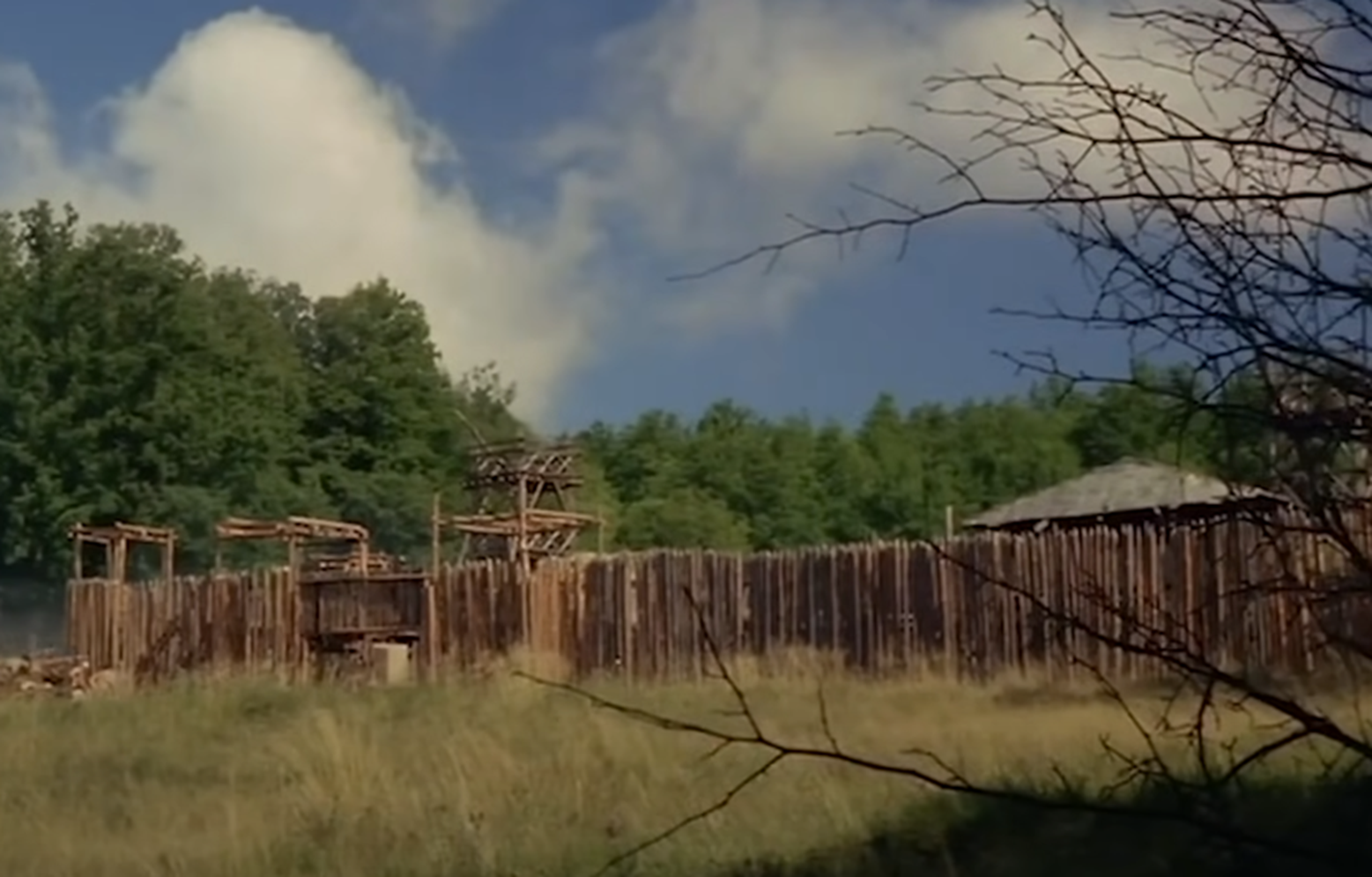 AWP, Lost Colony:The Legend of Roanoke (2007)
AWP, Lost Colony:The Legend of Roanoke (2007)
The English Arrived
The Croatan likely at least observed Europeans sailing along the coast over the following years, but it wasn't until 1584 that an English expedition returned to their lands. They made camp in an inlet just north of Hatteras Island, and it was time to meet.
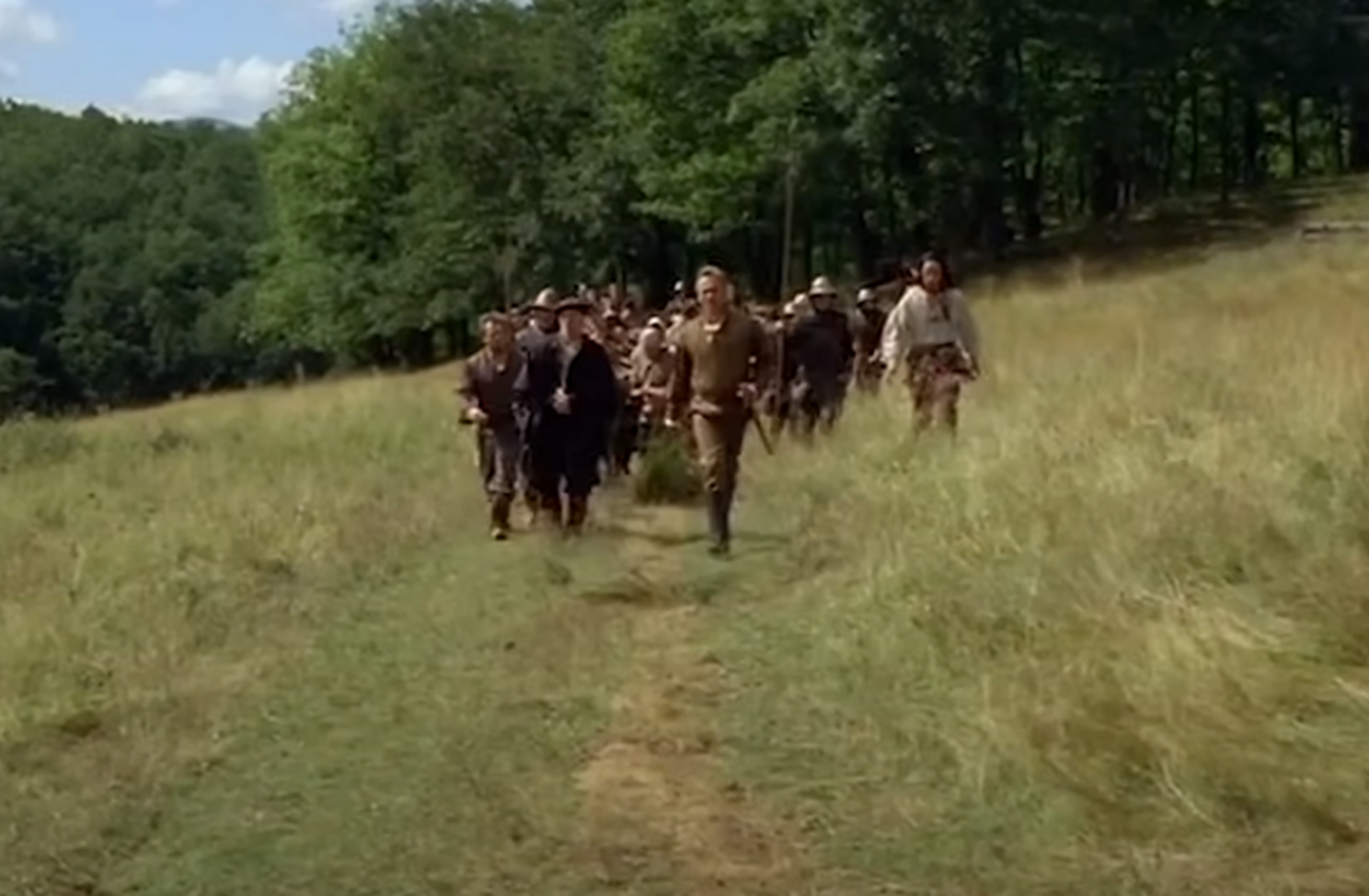 AWP, Lost Colony:The Legend of Roanoke (2007)
AWP, Lost Colony:The Legend of Roanoke (2007)
They Wanted To Play Nice
Some of the tribes in the region, like the Cherokee and the Yamasee, treated the Europeans with suspicion. But the Croatan and other Algonquin tribes like the Secotan thought that the newcomers might be powerful allies.
In a way, they were right. In another way, they were extremely wrong.
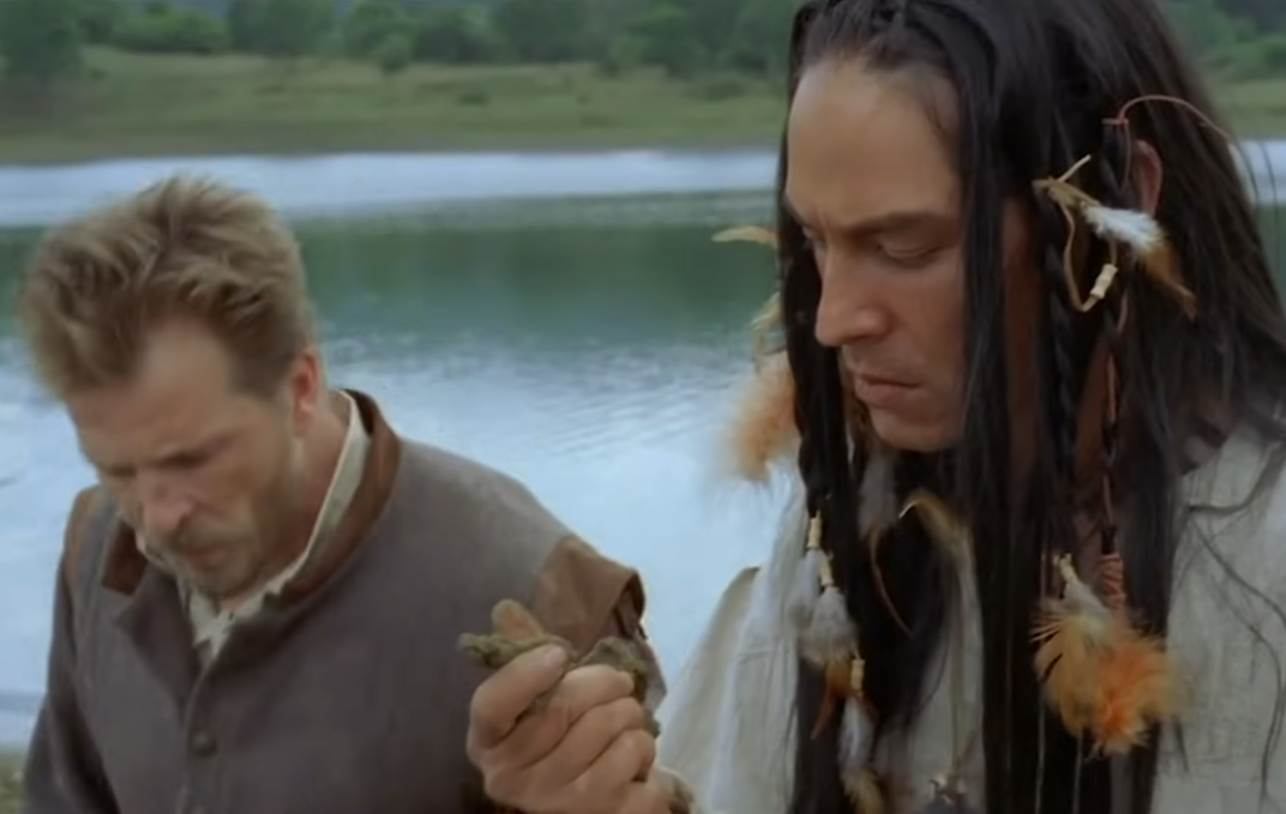 AWP, Lost Colony:The Legend of Roanoke (2007)
AWP, Lost Colony:The Legend of Roanoke (2007)
They Played Nice
Despite the language barrier, the Croatan were extremely hospitable to the English explorers. A Croatan named Manteo, whose mother was the current werowance, ended up travelling back to England with the expedition. He returned home the next spring having seen things that no Croatan had ever dreamed of.
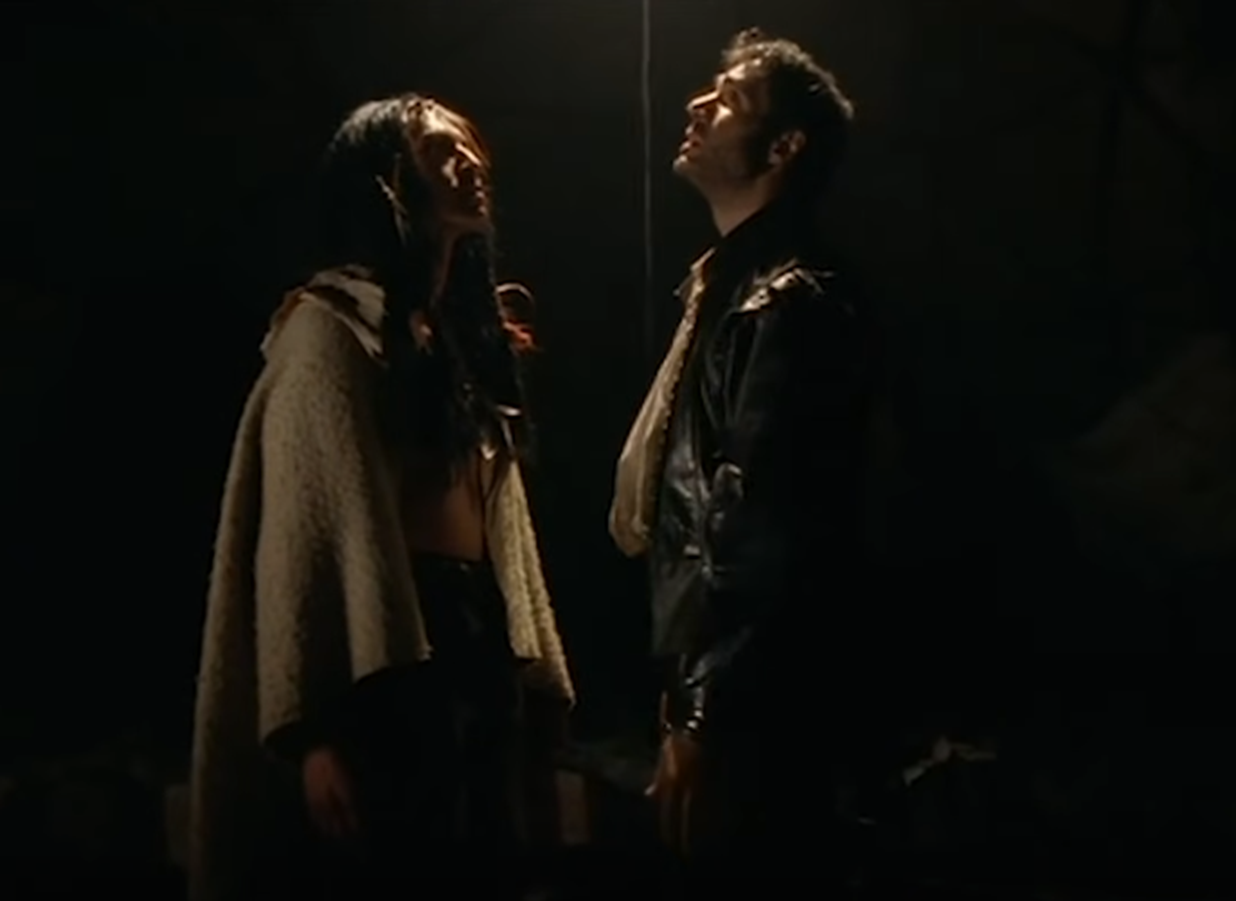 AWP, Lost Colony:The Legend of Roanoke (2007)
AWP, Lost Colony:The Legend of Roanoke (2007)
They Were Starting A Colony
Manteo hitched a ride back across the Atlantic with an expedition that was meant to start the first English colony in North America, named Virginia after Queen Elizabeth, the Virgin Queen. It didn't exactly go according to plan.
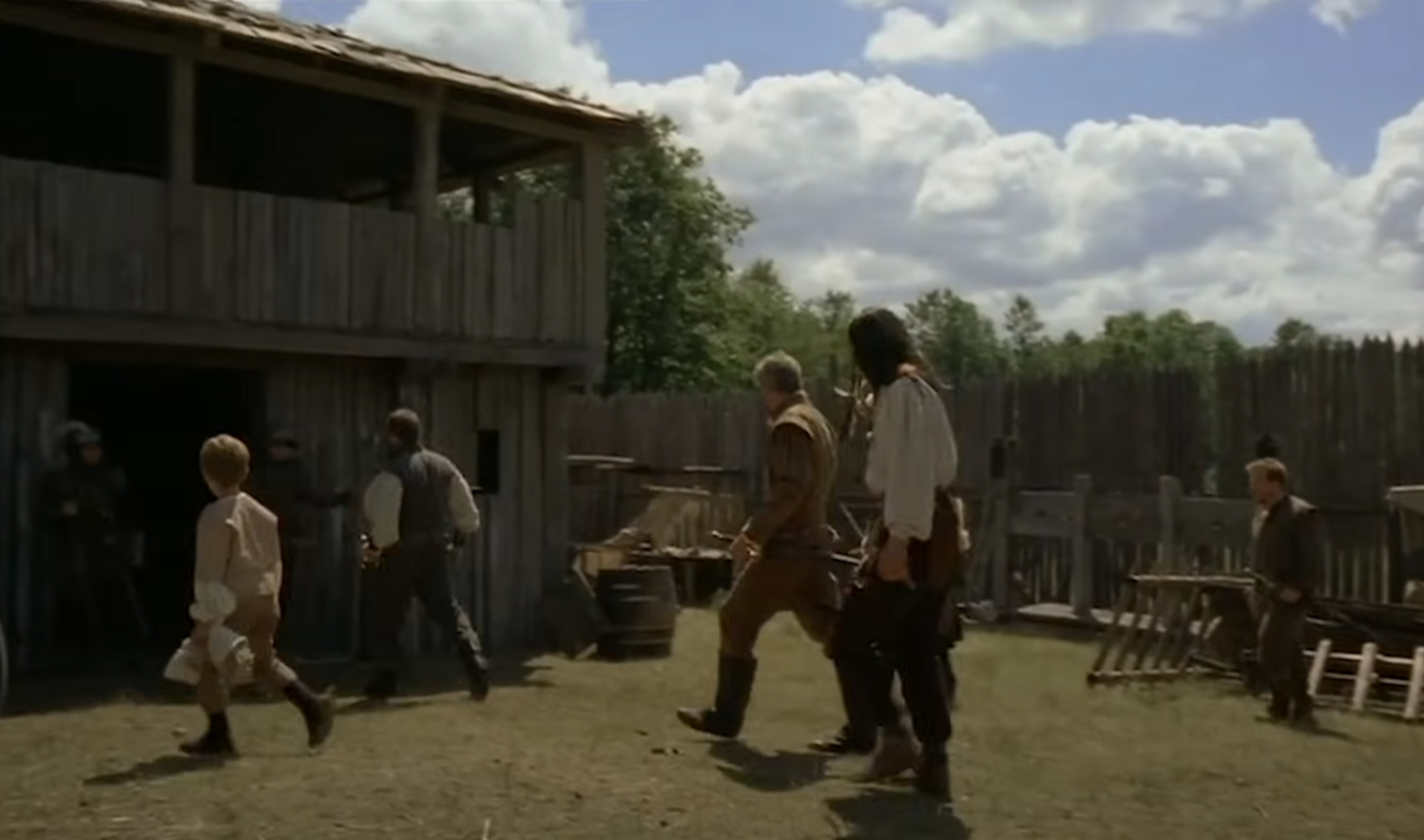 AWP, Lost Colony:The Legend of Roanoke (2007)
AWP, Lost Colony:The Legend of Roanoke (2007)
Their Alliance Was Beneficial
In the short term, the Croatan's alliance with the Europeans was very beneficial. The Europeans had superior firepower, but they relied heavily on their Native American allies for food.
In other words, they needed the Croatan—and that could be useful.
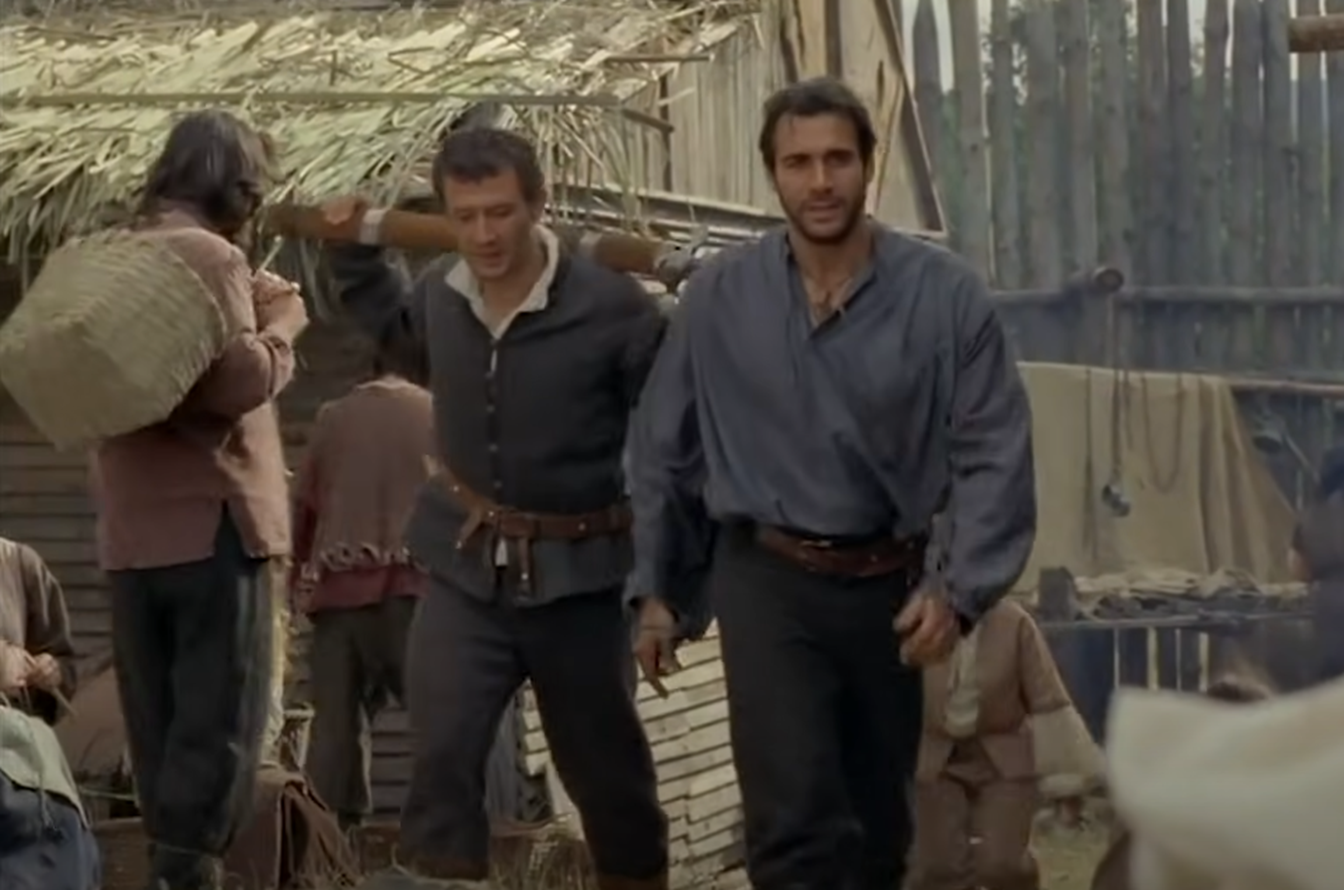 AWP, Lost Colony:The Legend of Roanoke (2007)
AWP, Lost Colony:The Legend of Roanoke (2007)
The Croatan Stuck With The English
Another Native American travelled to England with Manteo: Wanchese of the closely-related Roanoke. Upon his return to North America, Wanchese decided that the English were bad news and broke off relations. After that, Manteo and the Croatan were the only friends the English settlers had left.
Based on what was happening, it's no surprise the local tribes distrusted the English.
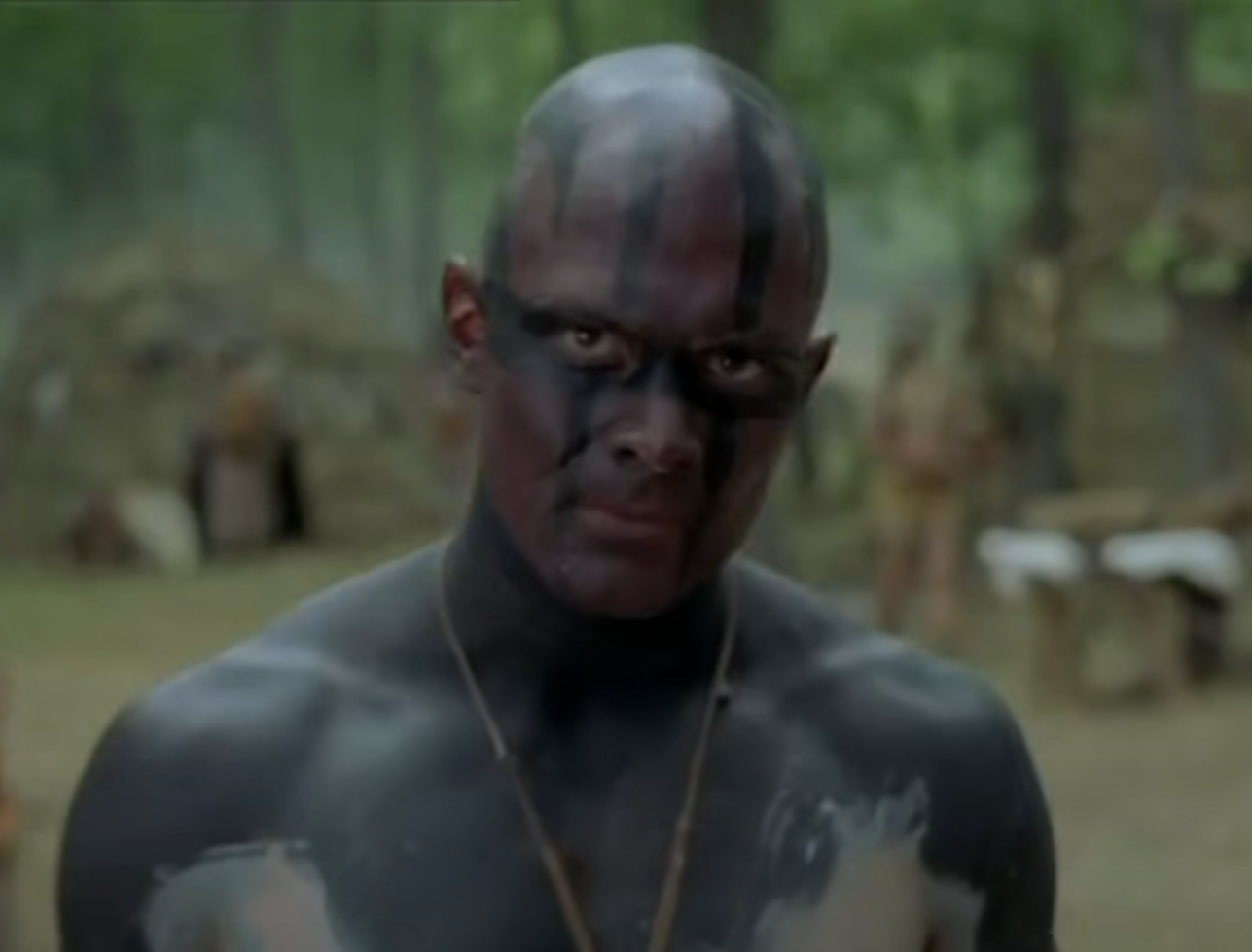 AWP, Lost Colony:The Legend of Roanoke (2007)
AWP, Lost Colony:The Legend of Roanoke (2007)
They English Spread Disease
Sudden plagues seemed to strike whenever the English visited a Native American village, likely smallpox or influenza, diseases for which the tribes had no immunity. No wonder that relations between the English and the tribes grew strained.
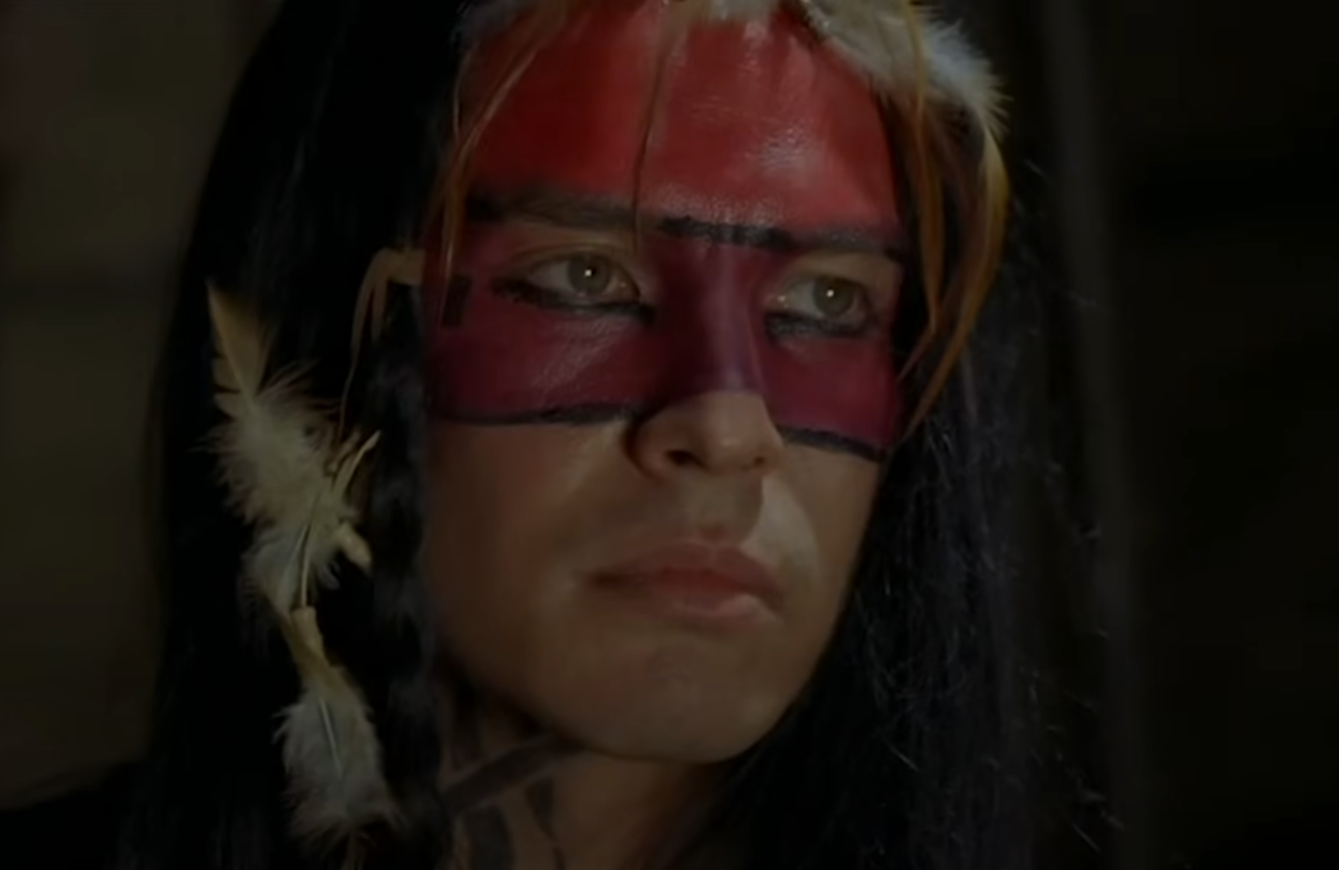 AWP, Lost Colony:The Legend of Roanoke (2007)
AWP, Lost Colony:The Legend of Roanoke (2007)
The Croatan Never Turned On Them
Relations between the English and the other local Indigenous tribes got so bad that the first attempt at a colony on Roanoke island was completely abandoned. A small contingent of 15 men was left behind to maintain an English presence in the area, but they were never heard from again.
But that wasn't the last the Croatan would hear of the English.
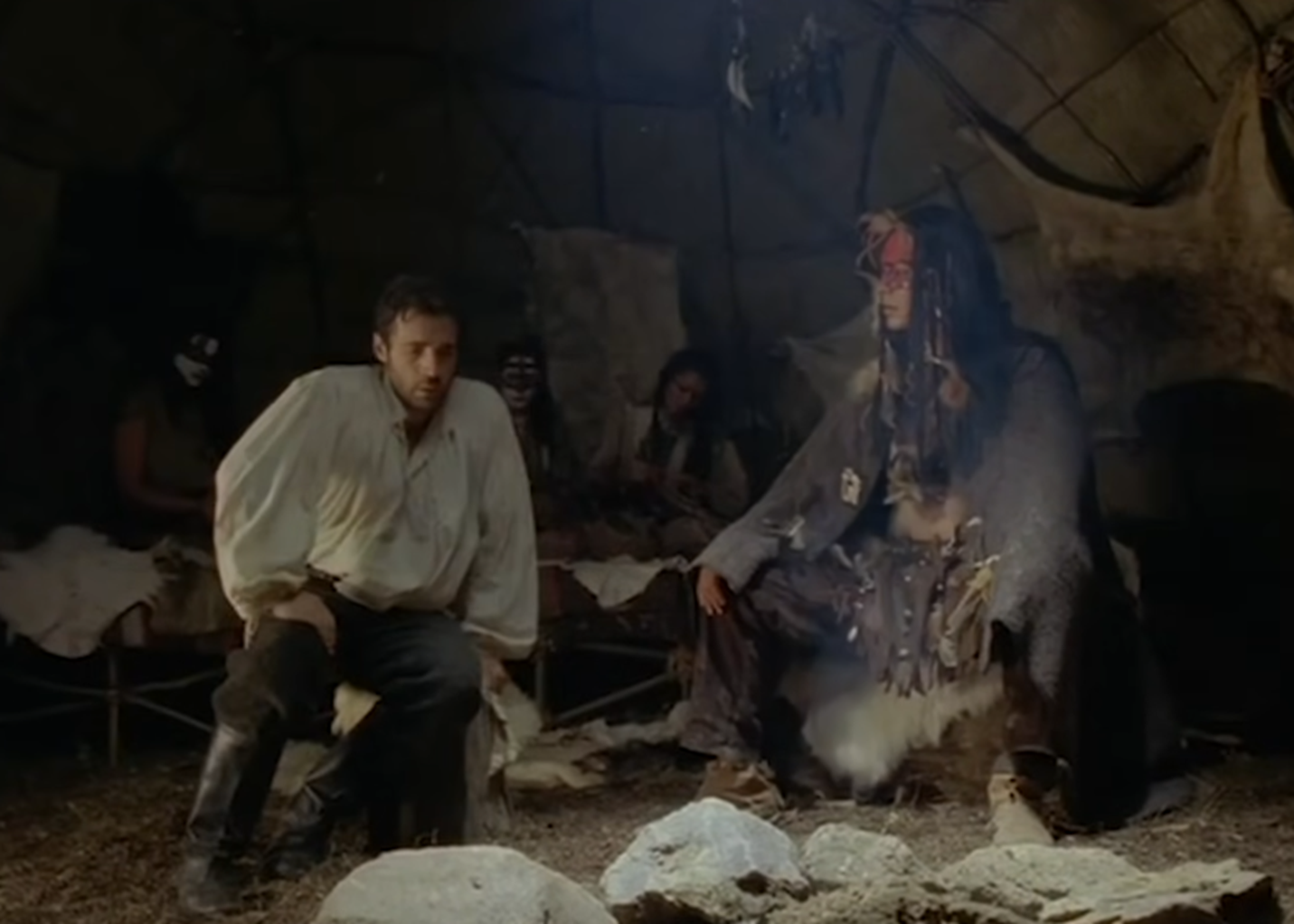 AWP, Lost Colony:The Legend of Roanoke (2007)
AWP, Lost Colony:The Legend of Roanoke (2007)
They Tried Again
The second attempt by the English to found the colony of Virginia made land on July 22, 1587. Led by John White, an explorer and artist, the second Roanoke Colony consisted of over 100 individuals, this time including both women and children.
They could still count the Croatan among their allies—but they were doomed nonetheless.
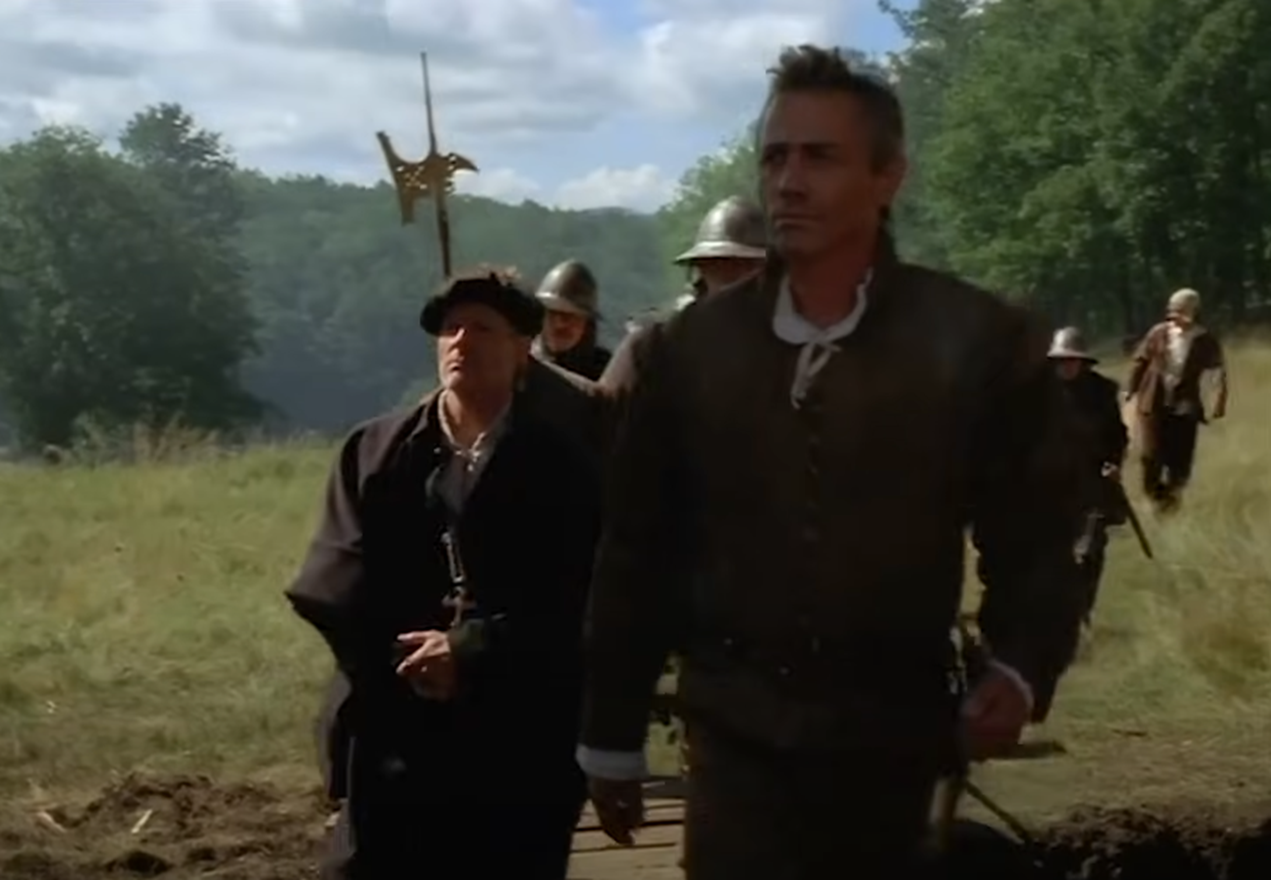 AWP, Lost Colony:The Legend of Roanoke (2007)
AWP, Lost Colony:The Legend of Roanoke (2007)
The Lost Colony Of Roanoke
Just over a month after John White and his colonists landed on Roanoke Island, his daughter gave birth to a child, Virginia, the first Christian child born in the colony of Virginia.
But beyond that one bright spot, supplies were low and the situation was dire. The colonists begged White to return to England and ask for help.
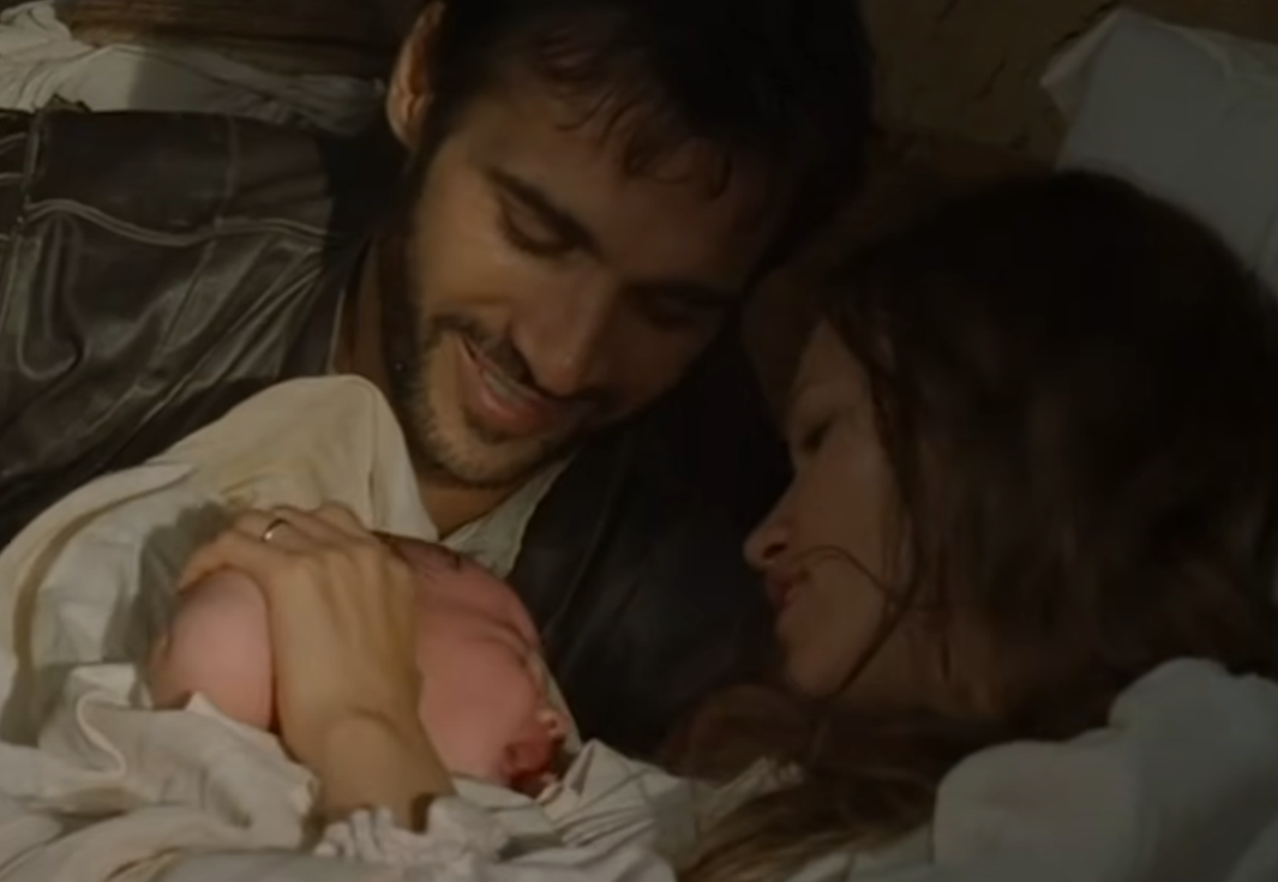 AWP, Lost Colony:The Legend of Roanoke (2007)
AWP, Lost Colony:The Legend of Roanoke (2007)
He Left His People
White reluctantly set sail for England a week after Virginia was born. After many painful delays, he finally returned three long years later—and found the colony deserted. Smoke indicated someone had been there recently, but there was no sign of Virginia, her mother, or any of the colonists.
No one ever saw any of them ever again.
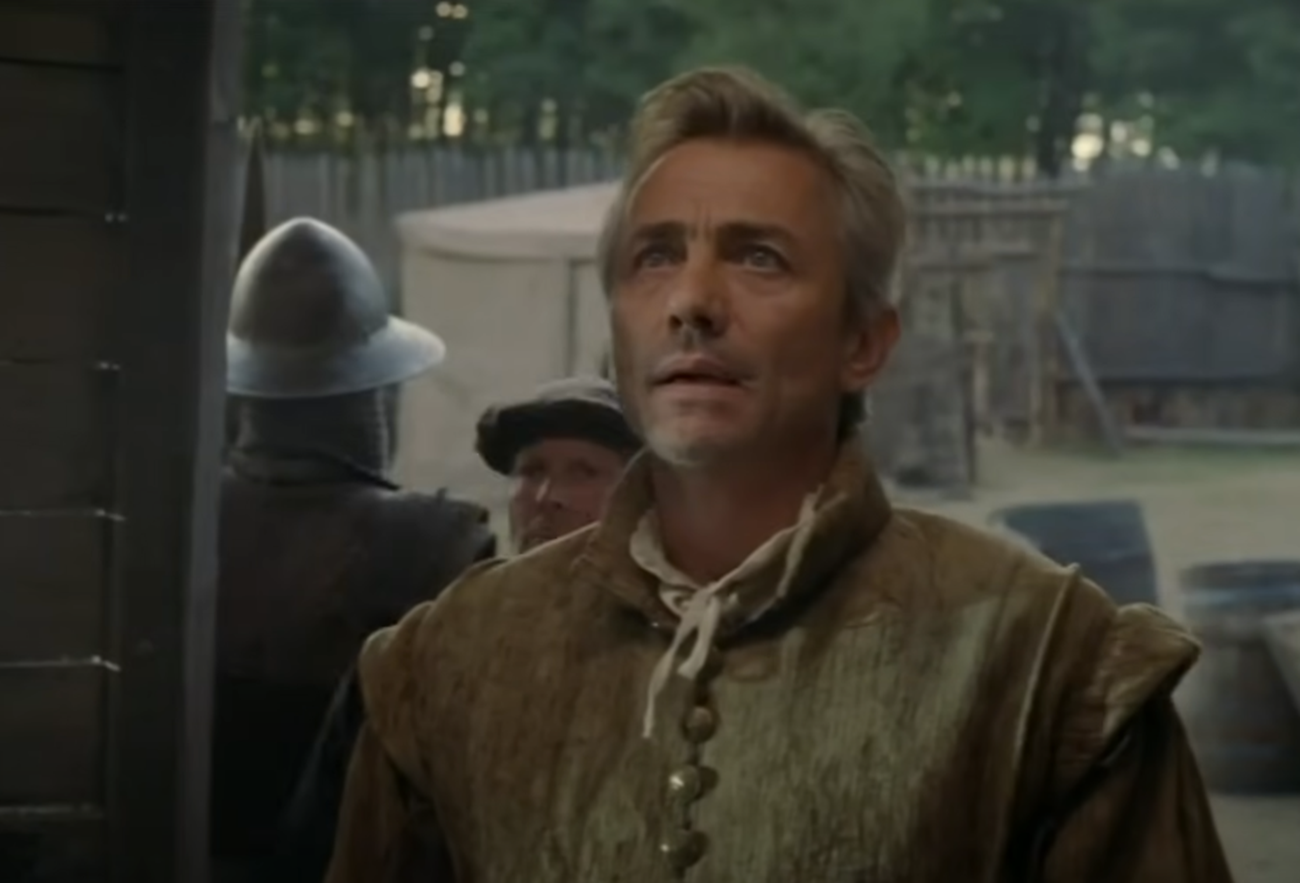 AWP, Lost Colony:The Legend of Roanoke (2007)
AWP, Lost Colony:The Legend of Roanoke (2007)
It Broke John White
White later returned to England a shell of the daring pioneer he once was. He faded away into obscurity, but spent the rest of his life praying that his daughter and granddaughter might be alive somehow. So what happened to the Lost Colony of Roanoke?
The only clue that they left behind indicates that the Croatan had something to do with it.
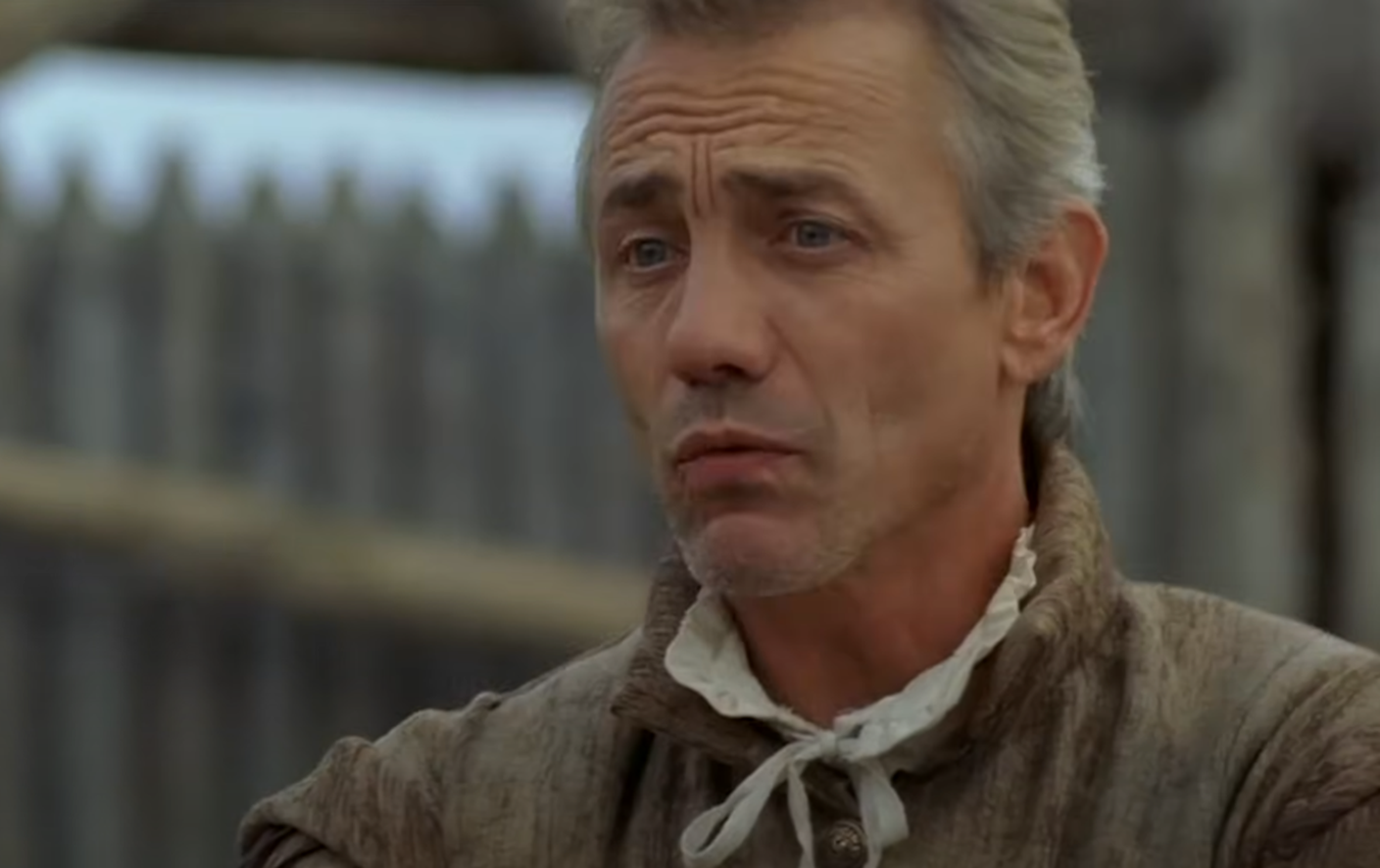 AWP, Lost Colony:The Legend of Roanoke (2007)
AWP, Lost Colony:The Legend of Roanoke (2007)
Croatoan Was The Only Clue
When White returned to his colony, the place was deserted except for two clues: The letters CRO carved into a tree, and nearby, the word "Croatoan" carved into a fencepost. But what did it mean?
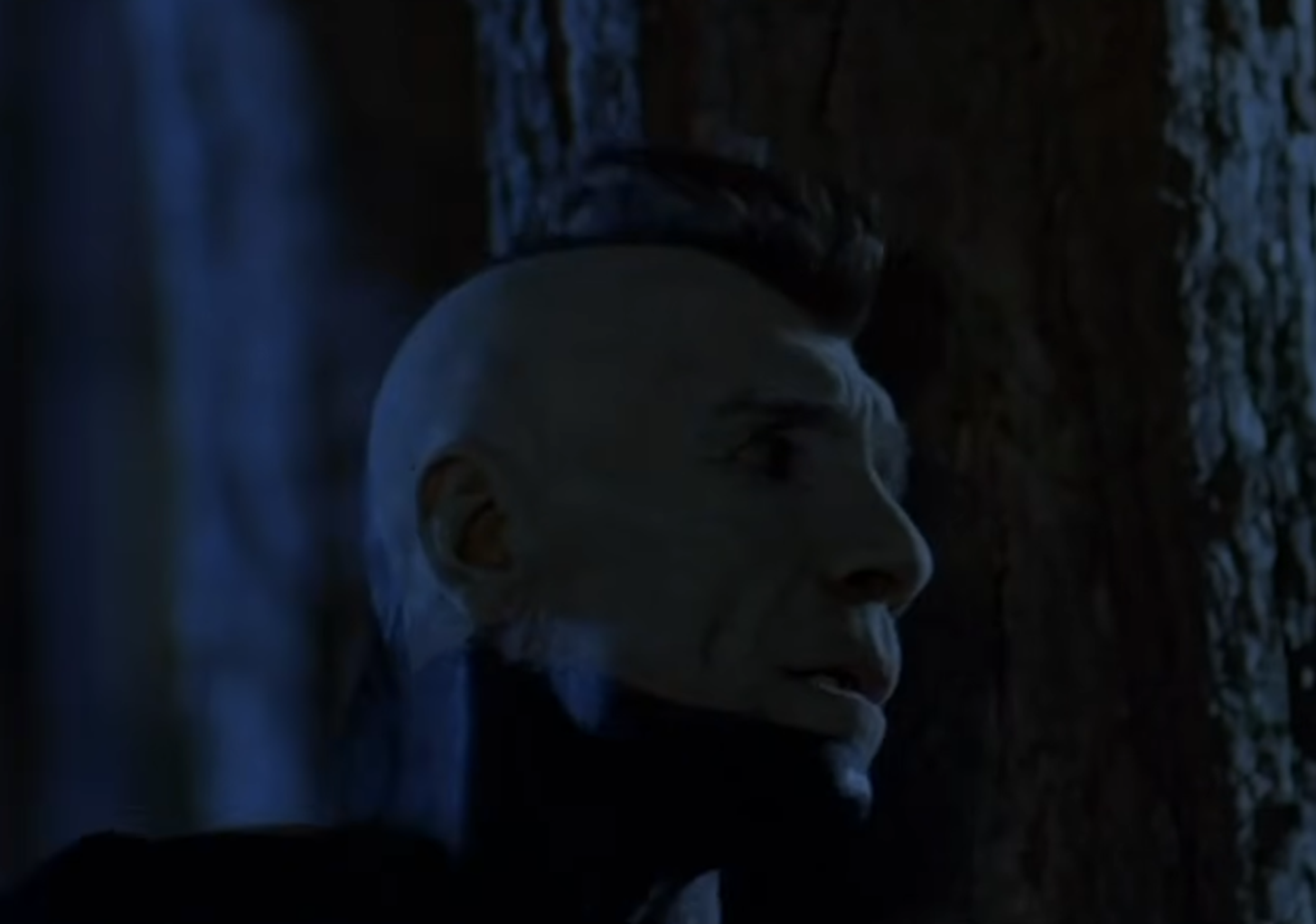 AWP, Lost Colony:The Legend of Roanoke (2007)
AWP, Lost Colony:The Legend of Roanoke (2007)
Was It A Signpost?
Remember, Croatoan was the word used for the principle Croatan settlement on Hatteras Island. When White first saw the sign, he must have breathed a sigh of relief.
He told the settlers to leave a sign if they had to relocate, and to include a Maltese cross if it was under duress.
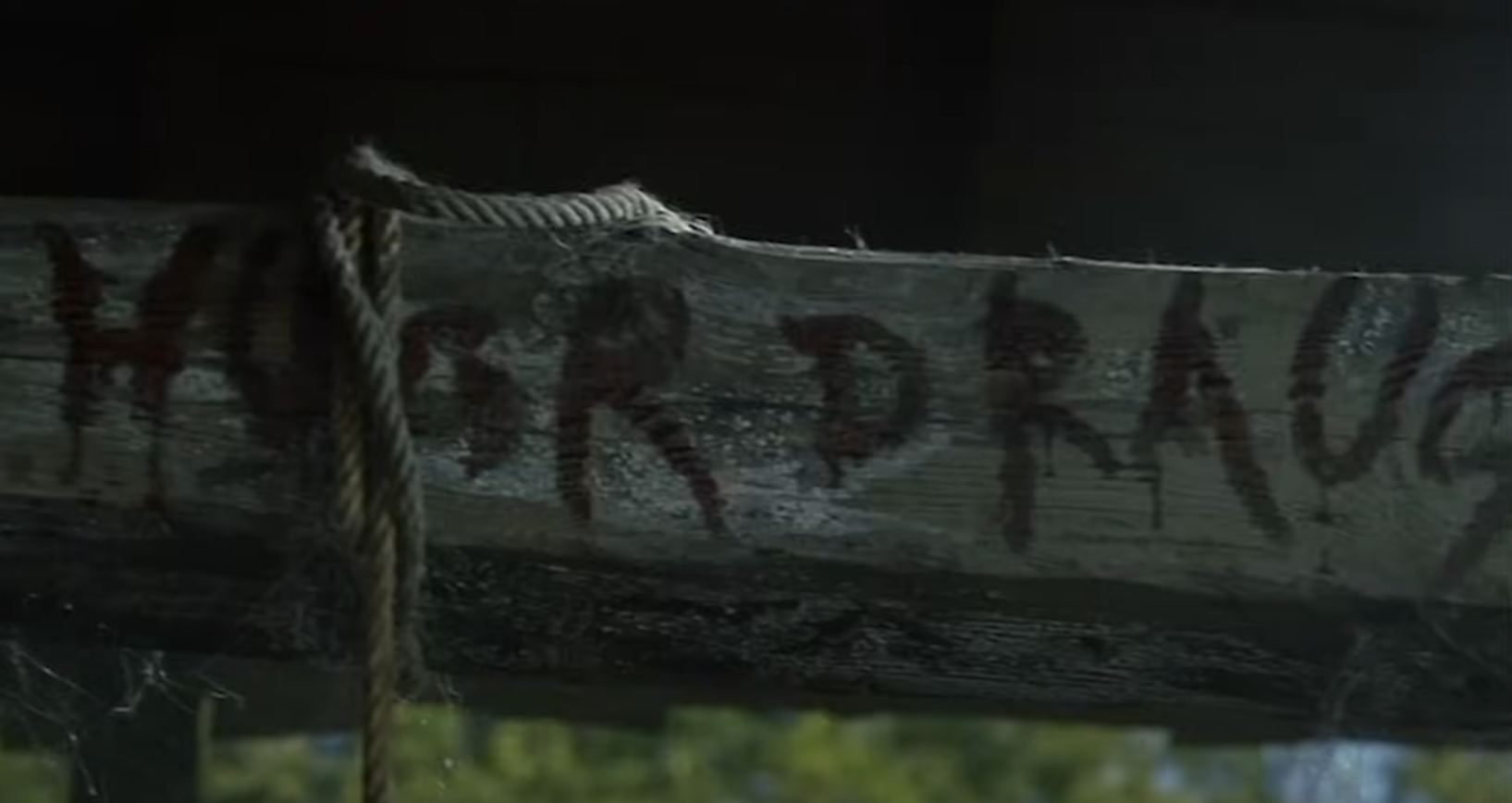 AWP, Lost Colony:The Legend of Roanoke (2007)
AWP, Lost Colony:The Legend of Roanoke (2007)
He Wasn't Worried
To White, the "Croatoan" sign clearly indicated the settlers had simply relocated to Hatteras Island, and no Maltese cross meant they were safe. And there was more good news.
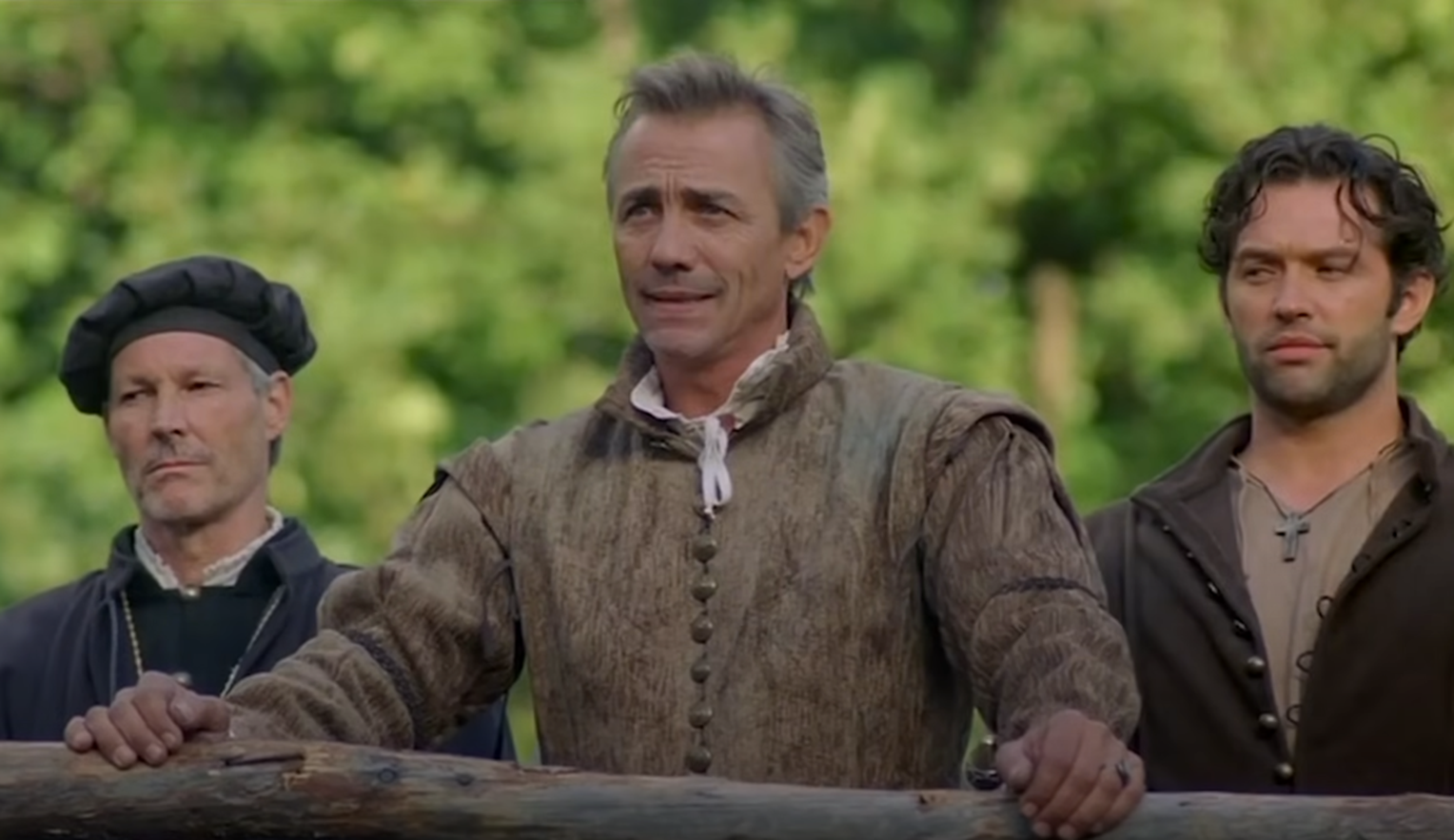 AWP, Lost Colony:The Legend of Roanoke (2007)
AWP, Lost Colony:The Legend of Roanoke (2007)
They Didn't Leave Suddenly
Much of the settlement had been carefully dismantled and the materials taken away. The settlers had also taken the time to carefully bury the possessions that White had left behind. White was convinced that his daughter and granddaughter were out there somewhere, and "Croatoan" was his only clue.
But he'd never get the chance to find them.
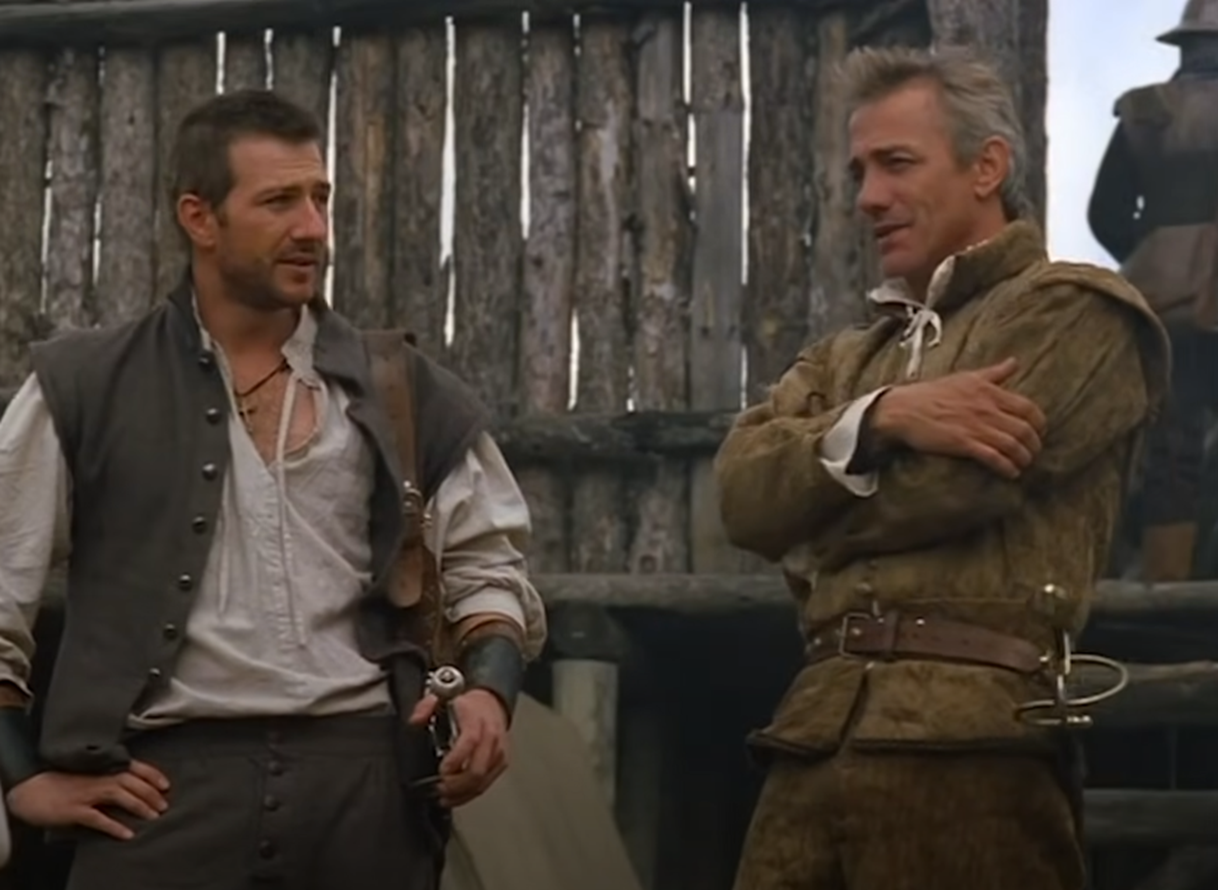 AWP, Lost Colony:The Legend of Roanoke (2007)
AWP, Lost Colony:The Legend of Roanoke (2007)
He Couldn't Search
White desperately wanted to search the Outer Banks for any sign of the colonists, but fate had other plans. His ship lost an anchor, and at risk of a shipwreck, they had to abandon the search and return to England. White never found his family, but he also never lost hope that they were alive.
So, the question remains: Were they?
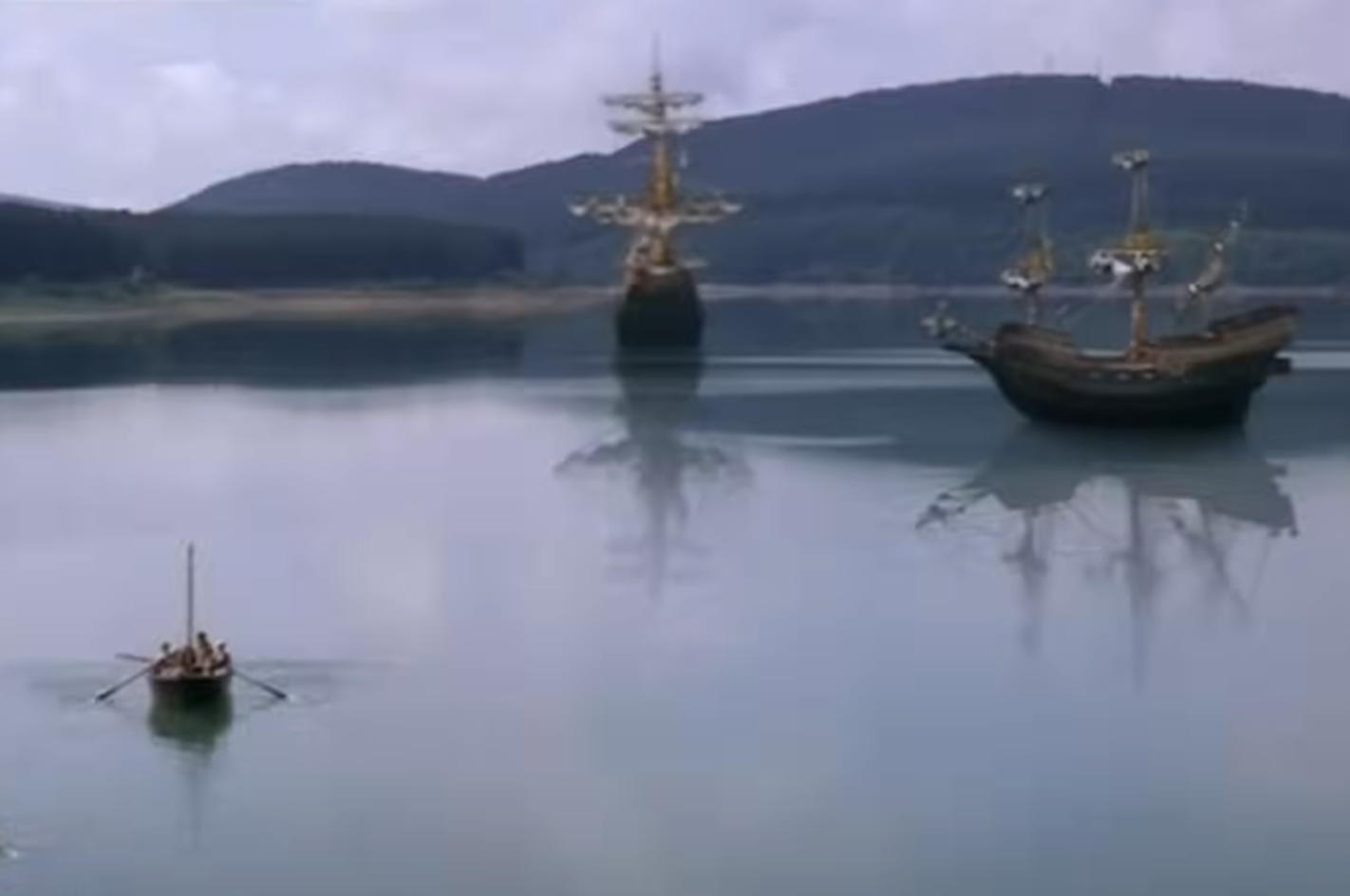 AWP, Lost Colony:The Legend of Roanoke (2007)
AWP, Lost Colony:The Legend of Roanoke (2007)
The Search Continued
John White never returned to the New World, but investigations into the Lost Colony of Roanoke continued. After two failed attempts that came up with nothing, the first real clue to the fate of the colonists came to John Smith—as in "Pocahontas and John Smith".
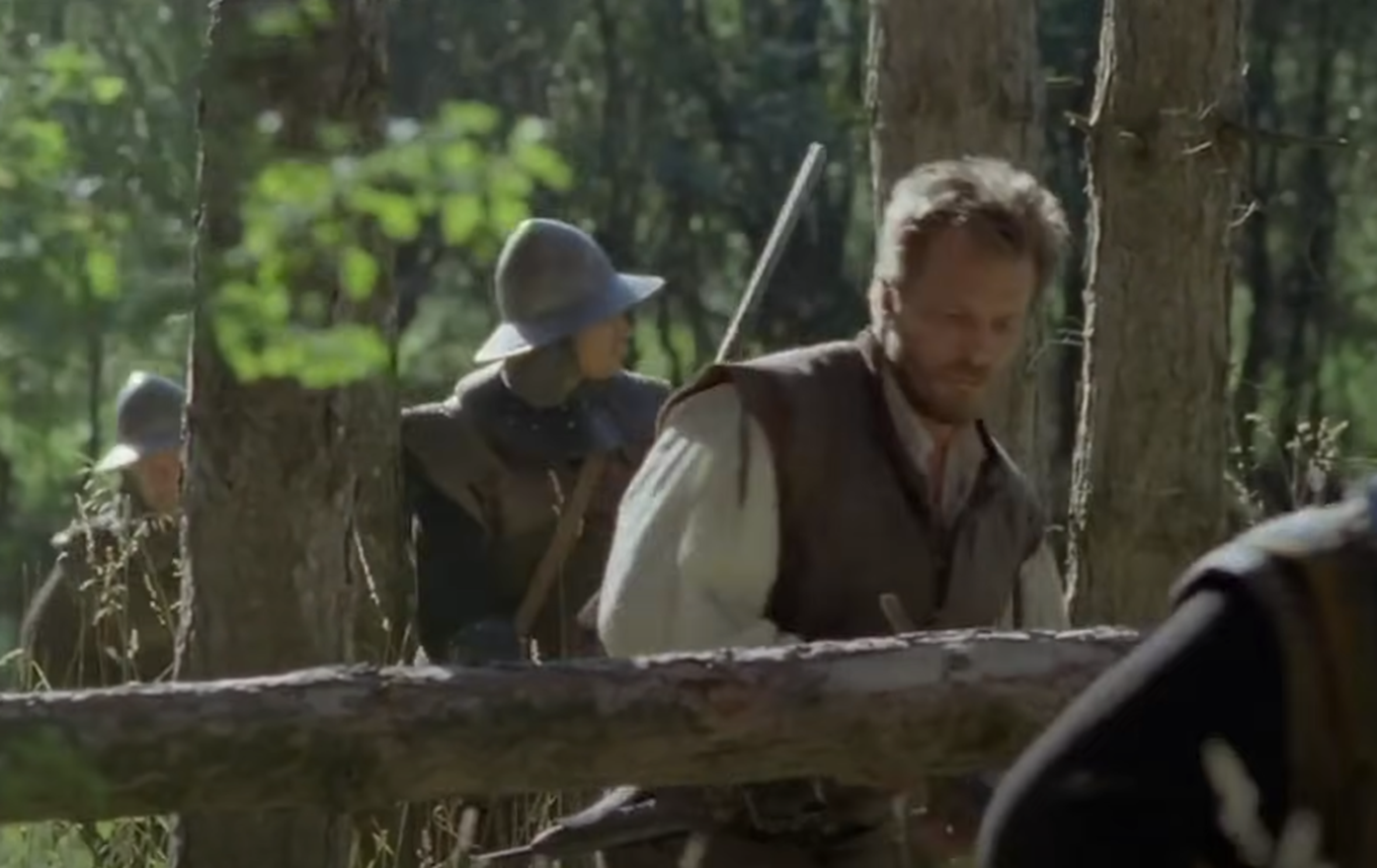 AWP, Lost Colony:The Legend of Roanoke (2007)
AWP, Lost Colony:The Legend of Roanoke (2007)
The First Clue
After the Powhatan captured John Smith of Jamestown in 1607, they told him of two settlements called "Ocanahonan" and "Anone". When they described these places, Smith's ears perked up immediately: Could this be where the Roanoke colonists ended up?
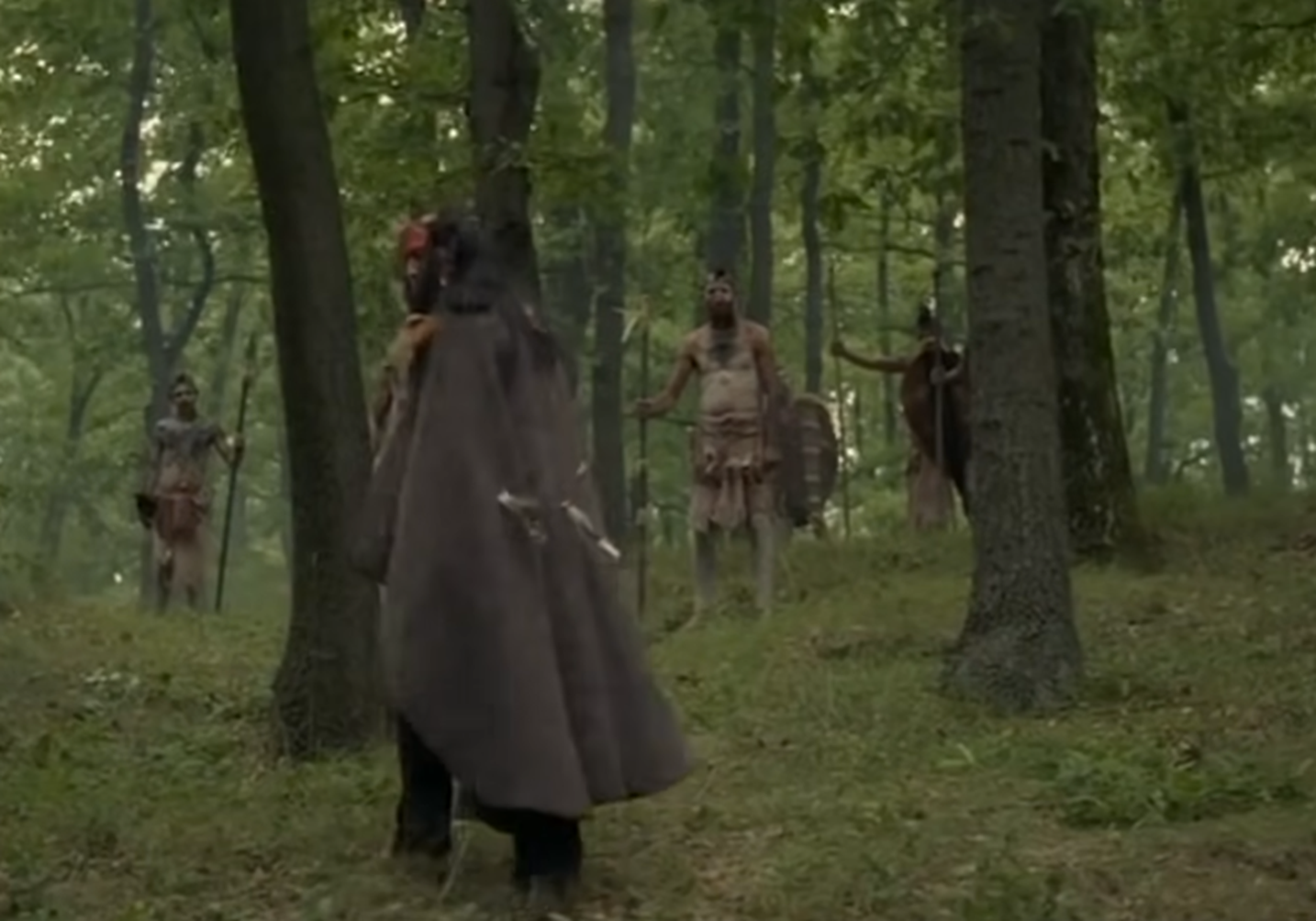 AWP, Lost Colony:The Legend of Roanoke (2007)
AWP, Lost Colony:The Legend of Roanoke (2007)
There Were Signs Of The Colonists
The Powhatan told Smith that the people in Ocanahonan wore European-style clothing, and that Anone had walled houses in the European style. He eventually produced a crude map of the region, including this note: "Here remayneth 4 men clothed that came from Roonocok to Ocanahawan".
It was the first sign anyone had seen—but it was a dead end.
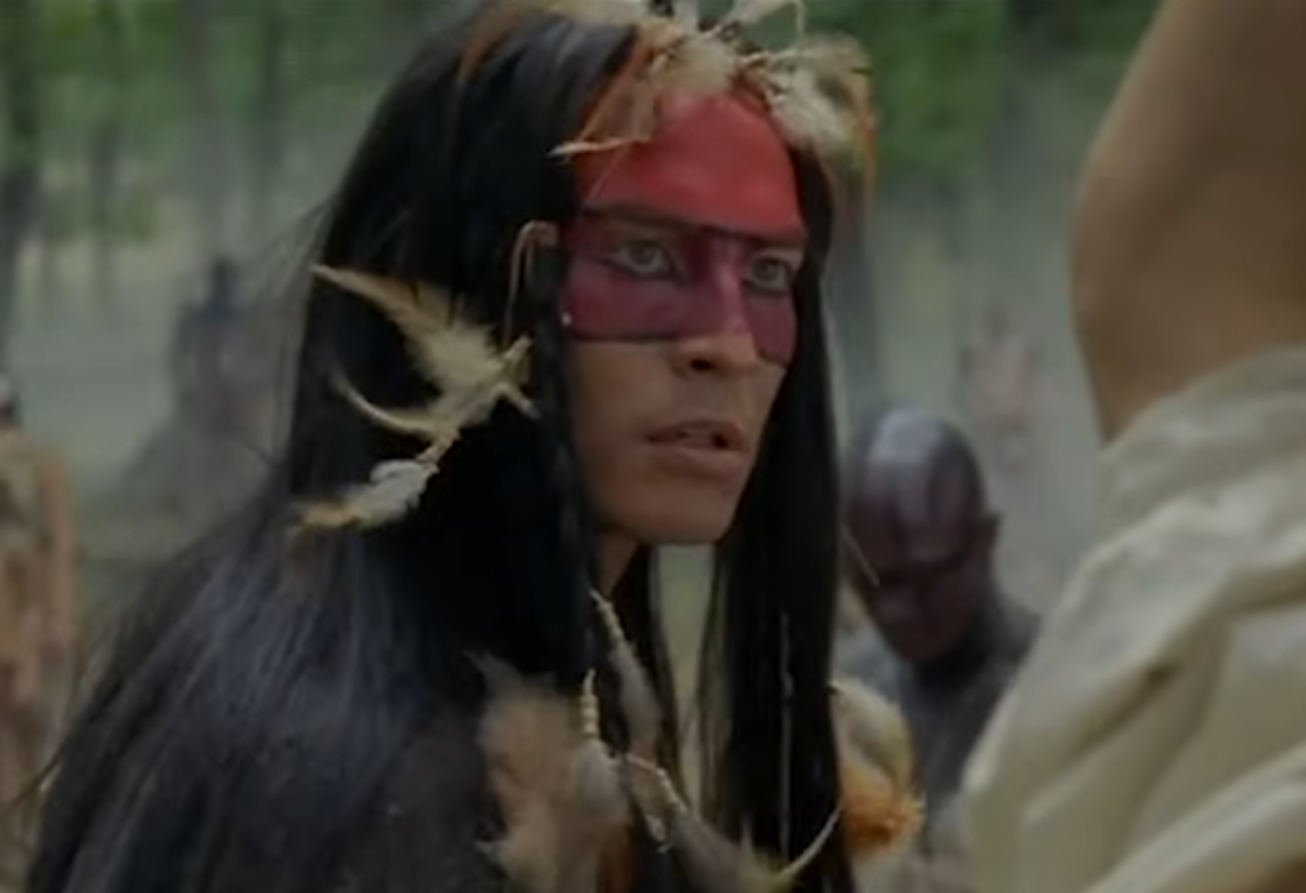 AWP, Lost Colony:The Legend of Roanoke (2007)
AWP, Lost Colony:The Legend of Roanoke (2007)
They May Have Been Attacked
Smith never found any concrete evidence of the people from Roanoke. Years passed, and as tensions with the Native Americans grew, the most popular theory was that a coalition of local tribes had attack the colony at Roanoke and wiped them out.
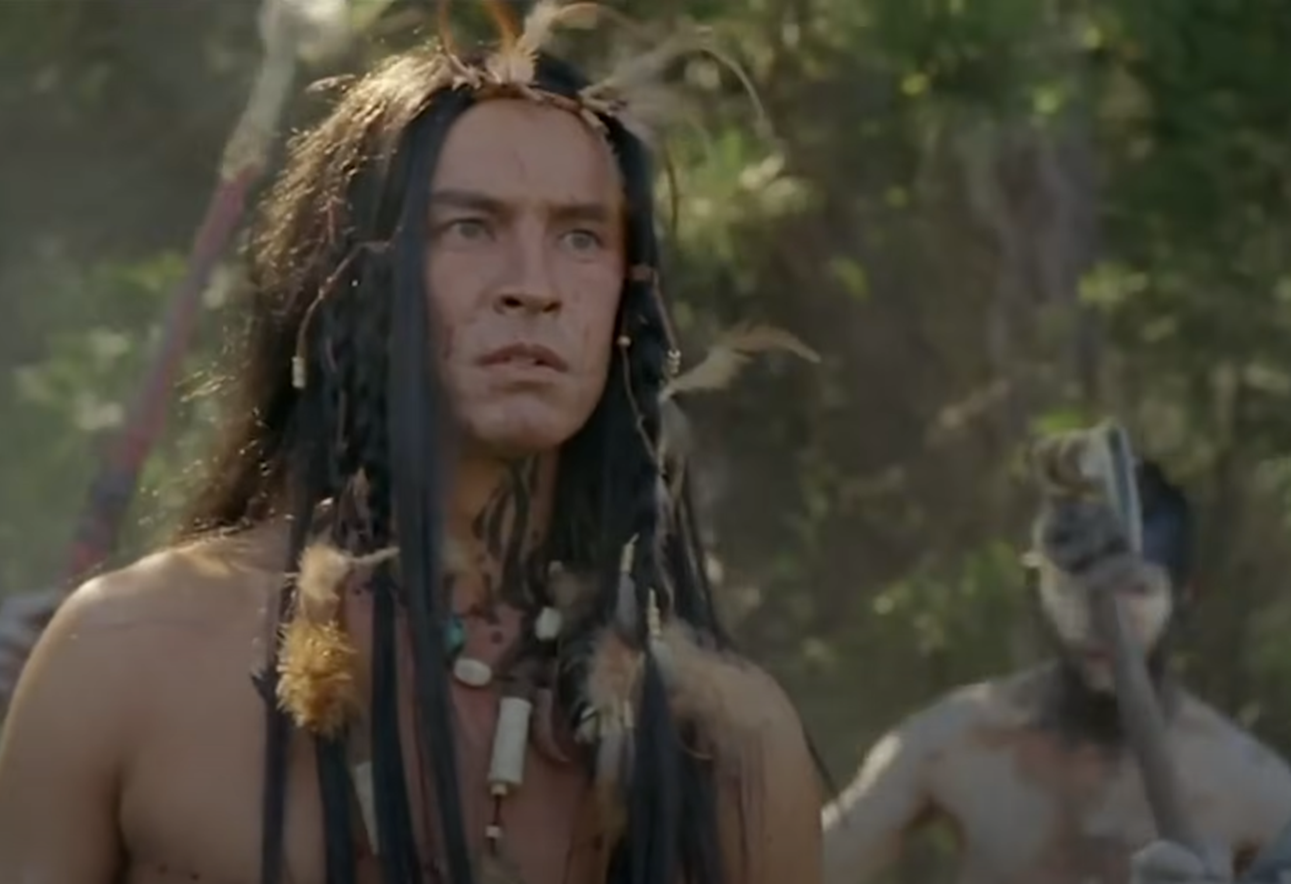 AWP, Lost Colony:The Legend of Roanoke (2007)
AWP, Lost Colony:The Legend of Roanoke (2007)
100 Years Passed
Attempts to find the colonists faded out—but the mystery endured. Finally, over 100 years after John White found Croatoan written on a fencepost, the first signs appeared.
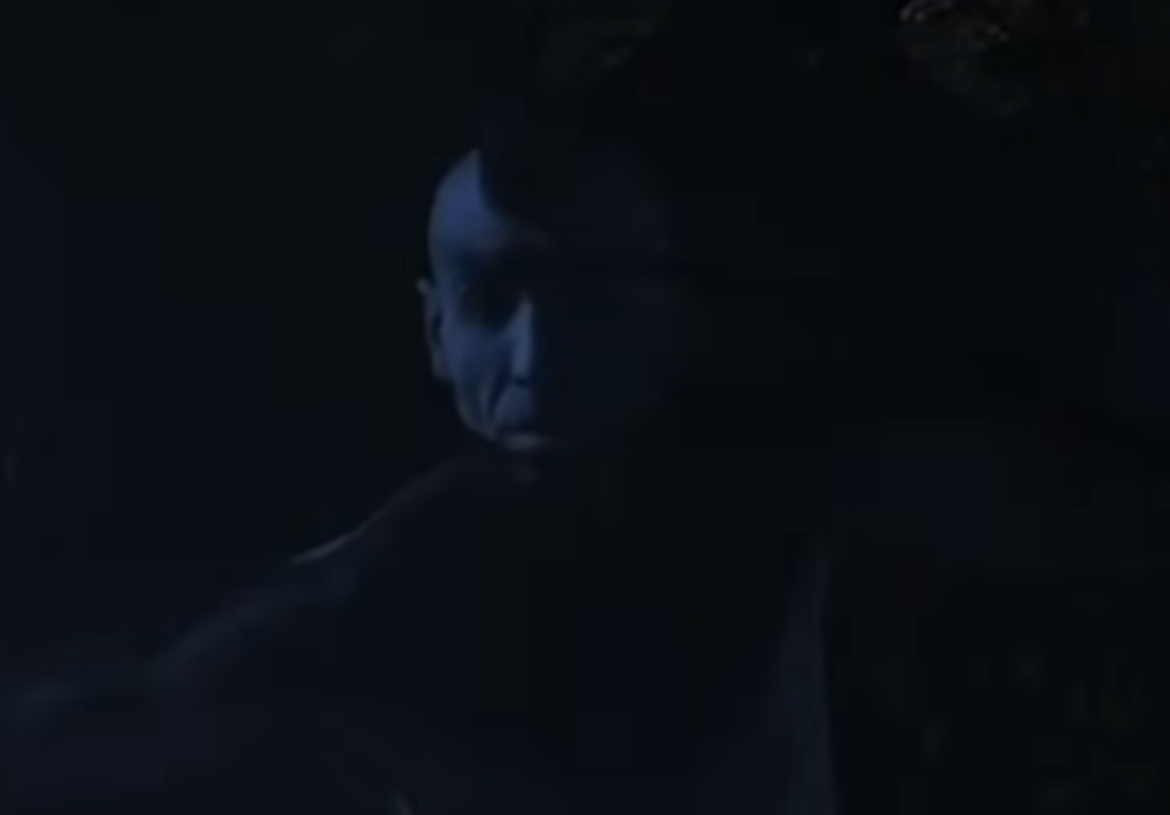 AWP, Lost Colony:The Legend of Roanoke (2007)
AWP, Lost Colony:The Legend of Roanoke (2007)
He Met The Hatteras
The Outer Banks region saw less and less traffic as other colonies grew more established. When English explorer and naturalist John Lawson arrived in the region in 1701, it saw very little European activity.
Lawson made contact with a tribe in the region who called themselves the Hatteras—and he made some surprising discoveries.
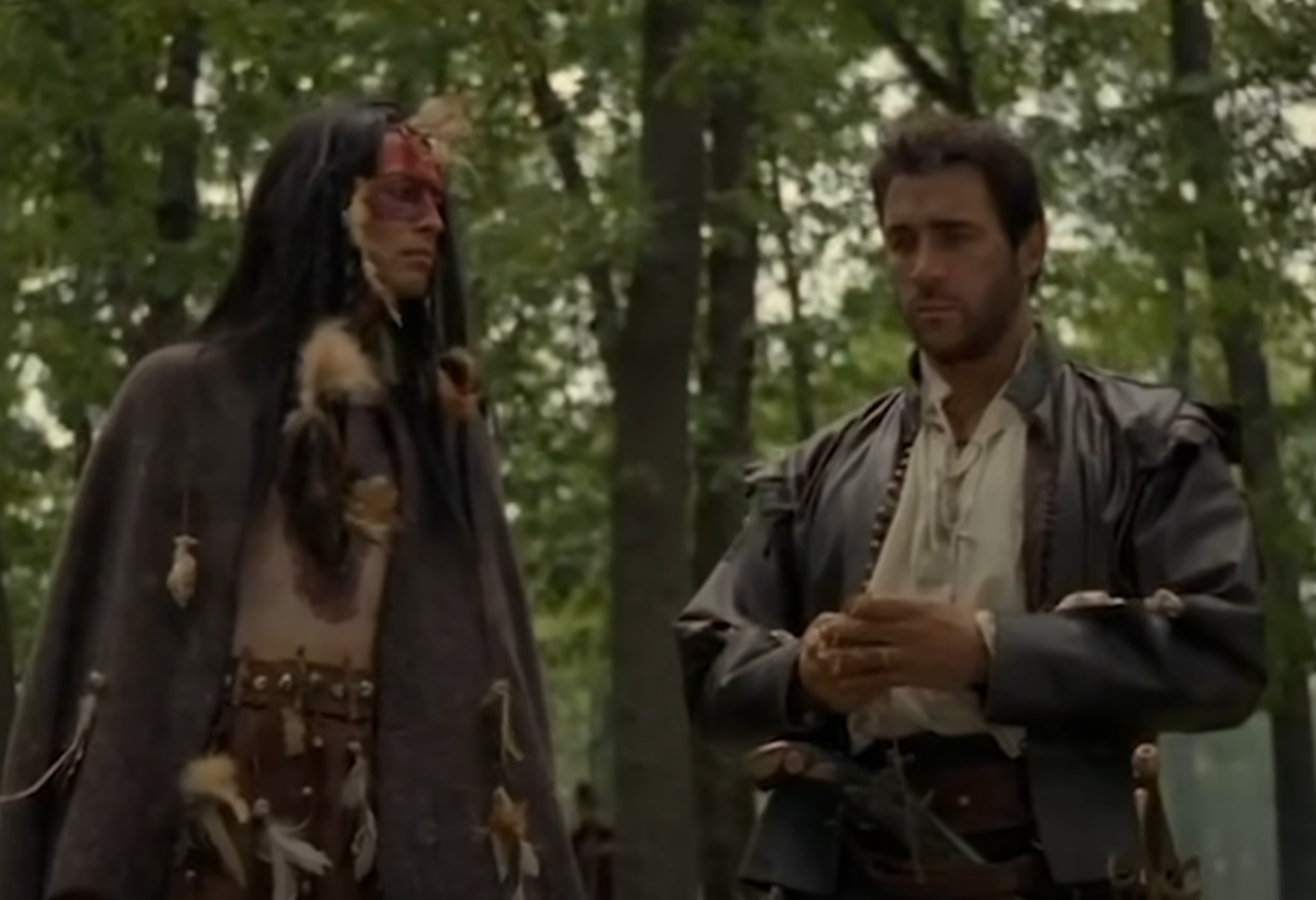 AWP, Lost Colony:The Legend of Roanoke (2007)
AWP, Lost Colony:The Legend of Roanoke (2007)
There Were Signs
Despite the fact that Europeans had all but abandoned the Outer Banks, the Hatteras's culture showed remarkable English influence. There was the physical evidence, like English coins and firearms, but also the undeniable fact that many Hatteras had gray eyes and claimed their ancestors were white.
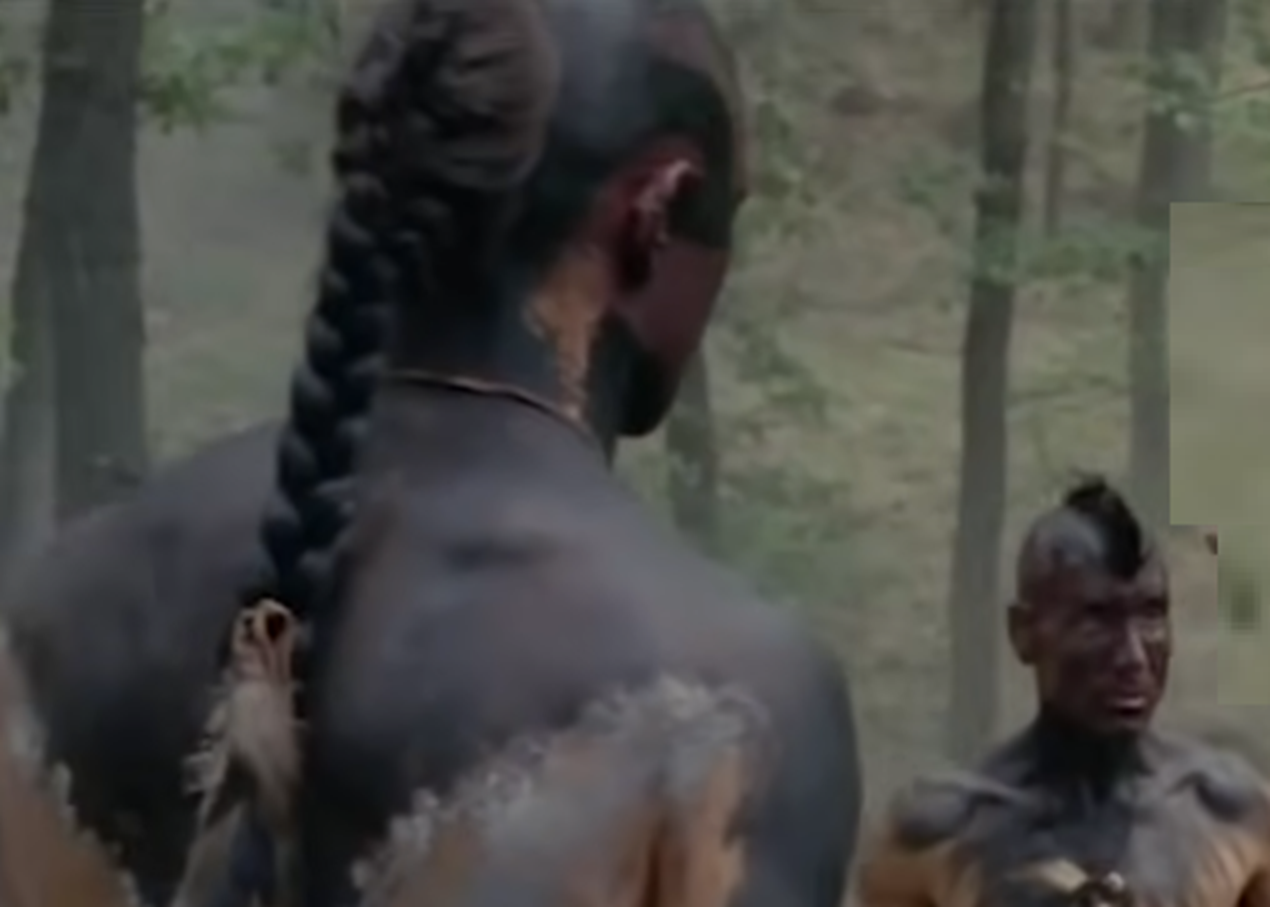 AWP, Lost Colony:The Legend of Roanoke (2007)
AWP, Lost Colony:The Legend of Roanoke (2007)
Evidence For Croatan Assimilation
Lawson concluded that the Hatteras people he met with were the remnants of the Croatan, who had allied with the settlers of the Roanoke Colony. Based on his observations, he believed that the surviving settlers from the Lost Colony assimilated with the tribe, though if true, the reason why is still a mystery.
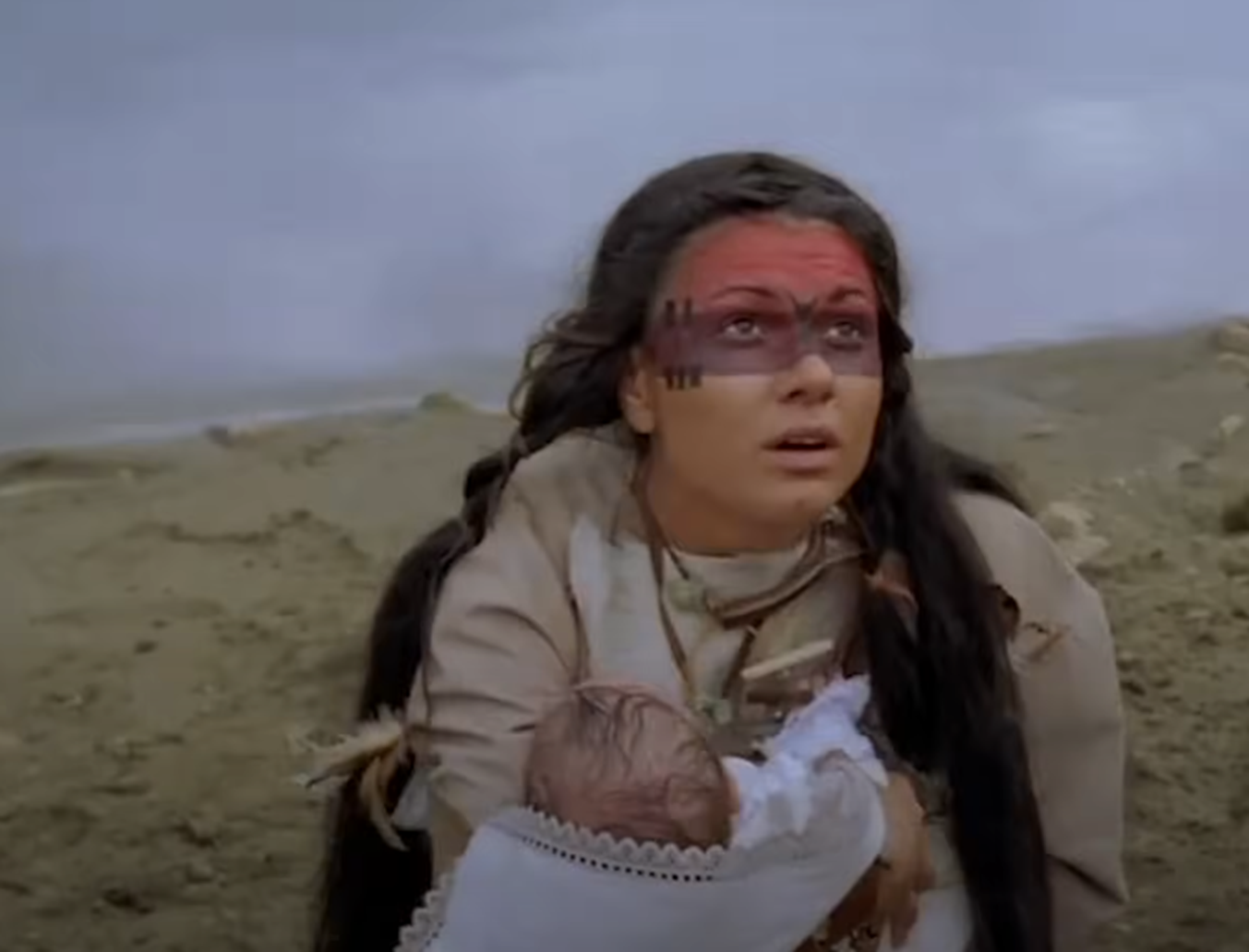 AWP, Lost Colony:The Legend of Roanoke (2007)
AWP, Lost Colony:The Legend of Roanoke (2007)
This Was Not Uncommon
There is ample evidence of European settlers integrating into Native American societies, and in almost all of these cases, they were reluctant to return, and their descendants considered Europeans to be foreign and not to be trusted.
So if the settlers of Roanoke did integrate with Croatan society, they likely weren't going to provide a detailed explanation.
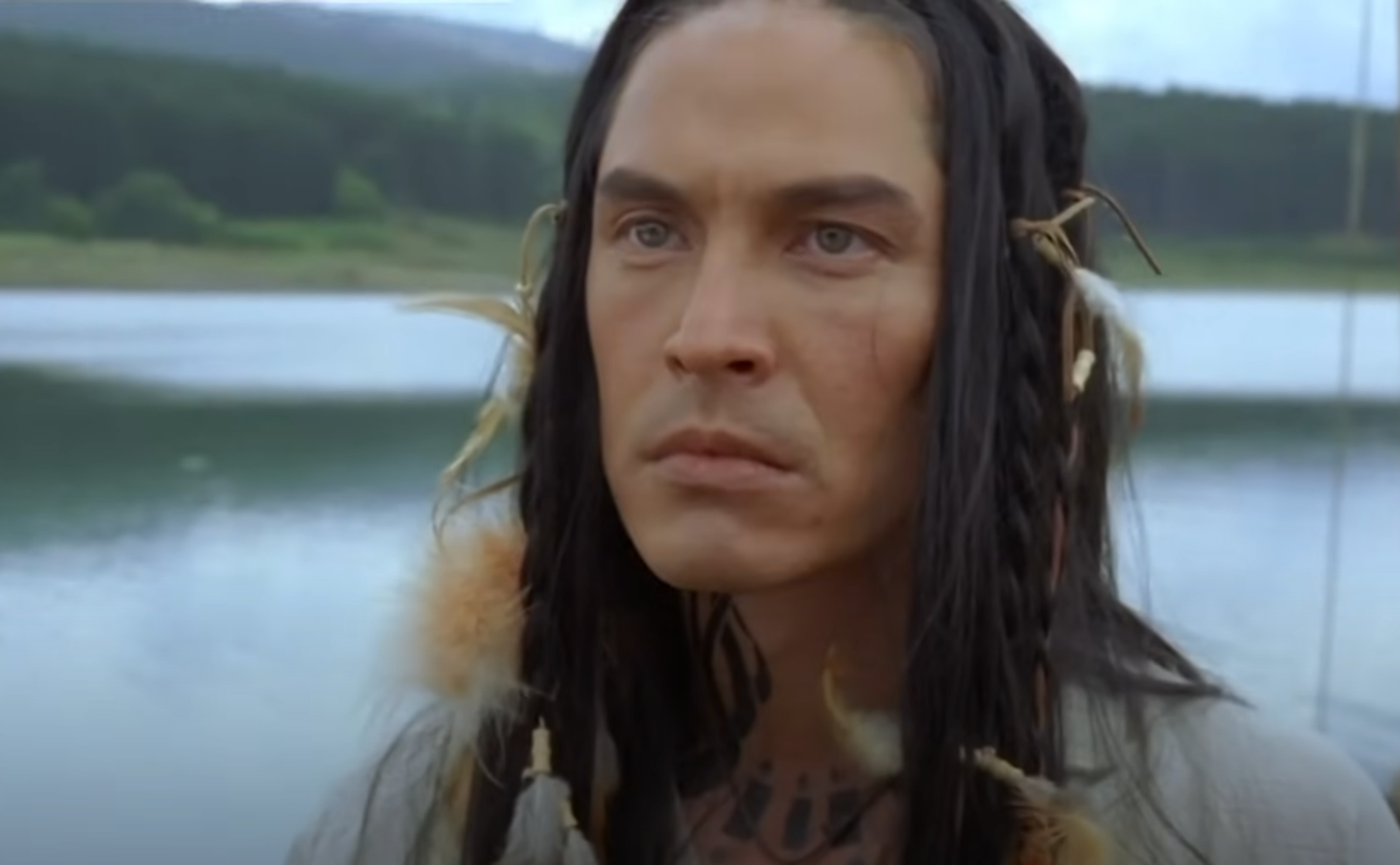 AWP, Lost Colony:The Legend of Roanoke (2007)
AWP, Lost Colony:The Legend of Roanoke (2007)
The Croatan Faded Away
Whether or not the colonists did integrate into Croatan society, diseases brought by the English continued to decimate the tribe's population, and it's believed that the tribe went extinct in the early 17th century.
But while there are no more Croatan today, their legacy endures.
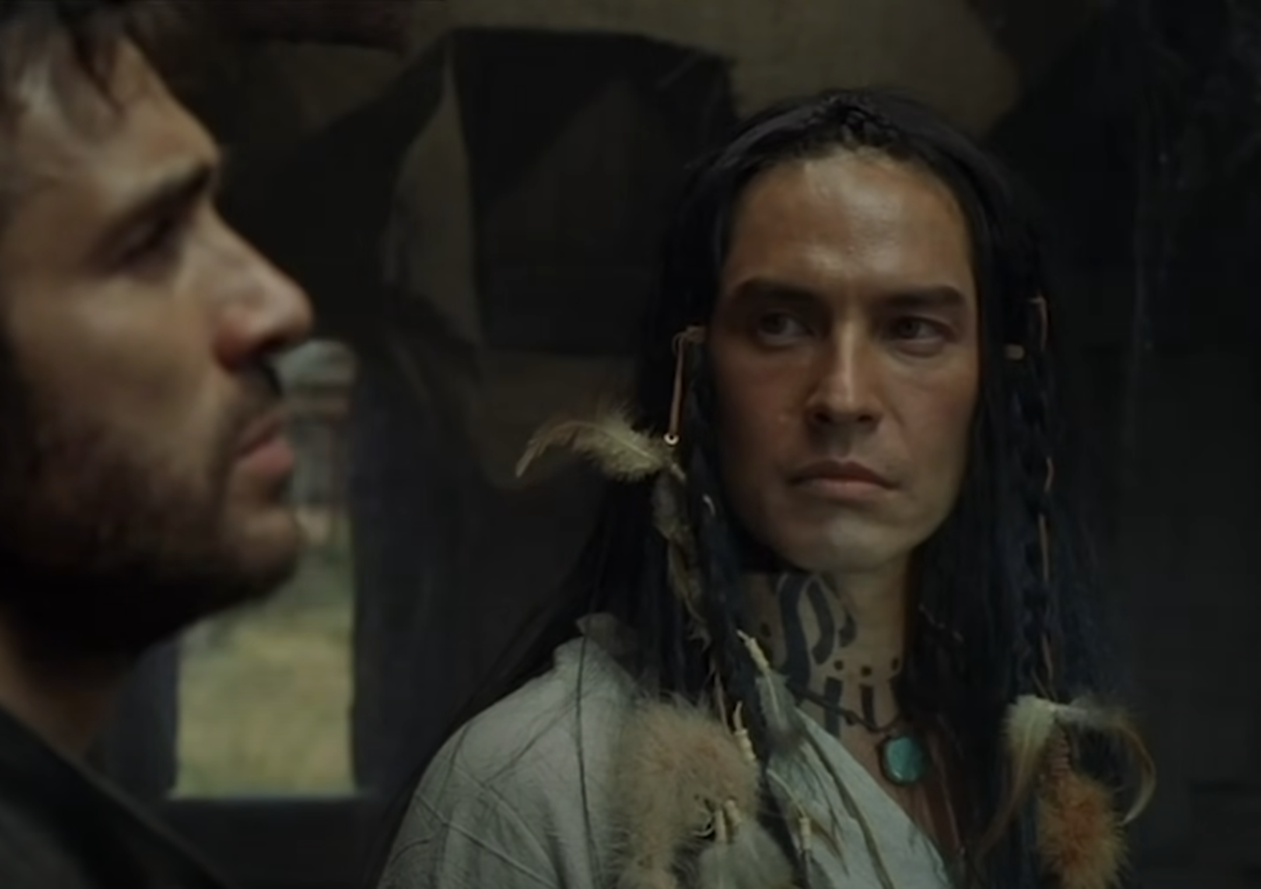 AWP, Lost Colony:The Legend of Roanoke (2007)
AWP, Lost Colony:The Legend of Roanoke (2007)
The Hatteras Claimed Ancestry
The Hatteras tribe of North Carolina, for whom Cape Hatteras owes its name, lived at the site of the village of Croatoan on Hatteras Island, and it's believed they are the ancestors of the Croatan who encountered the colonists at Roanoke.
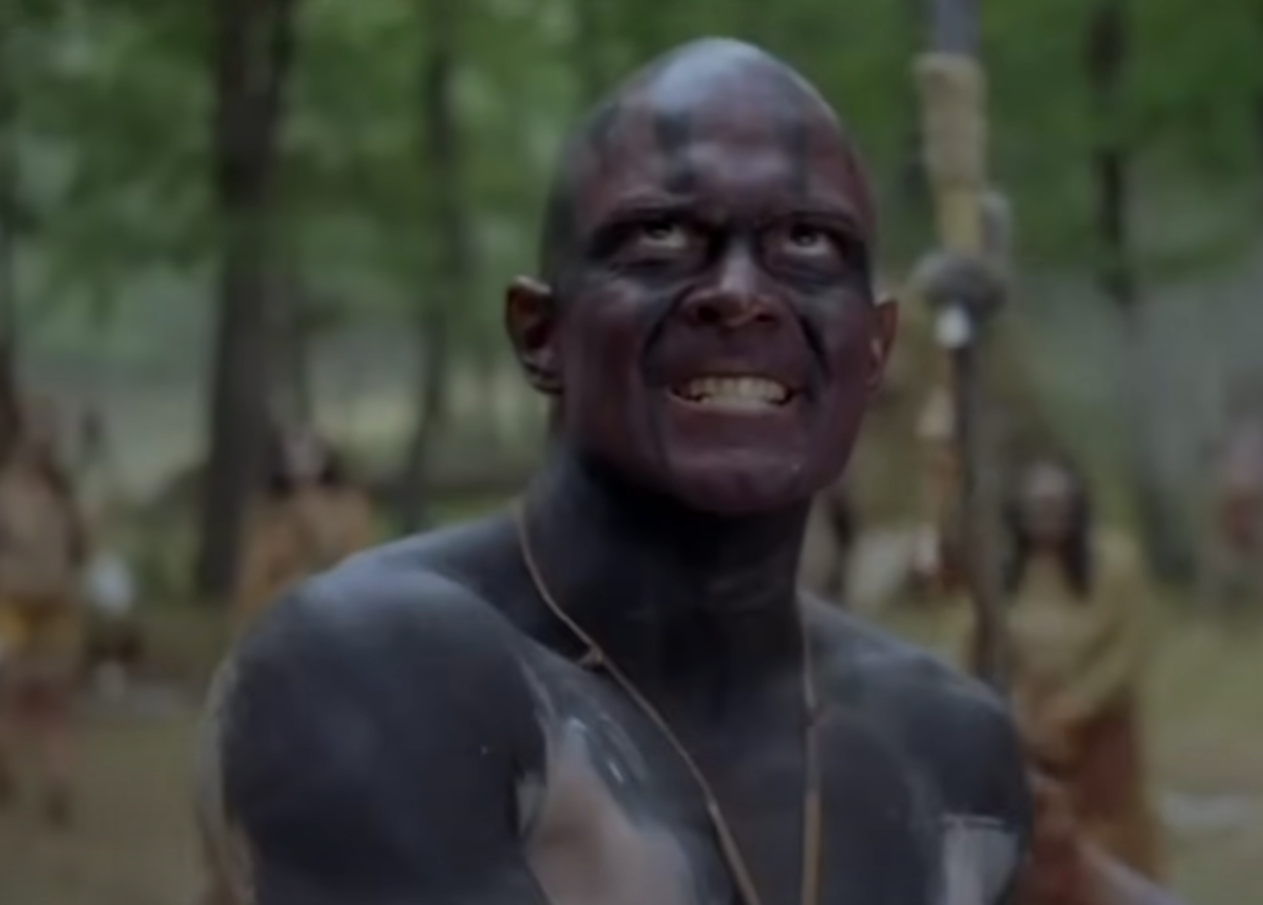 AWP, Lost Colony:The Legend of Roanoke (2007)
AWP, Lost Colony:The Legend of Roanoke (2007)
There Are Still Tribes With Croatan Ancestry
In 1911, the state of North Carolina recognized two tribes with Croatan ancestry: the Croatan Indians of Robeson County and the Croatan Indians of Sampson County. These tribes both still persist to this day, though they have since changed their names to the Lumbee Tribe of North Carolina and the Coharie Intra-tribal Council, Inc., respectively.

